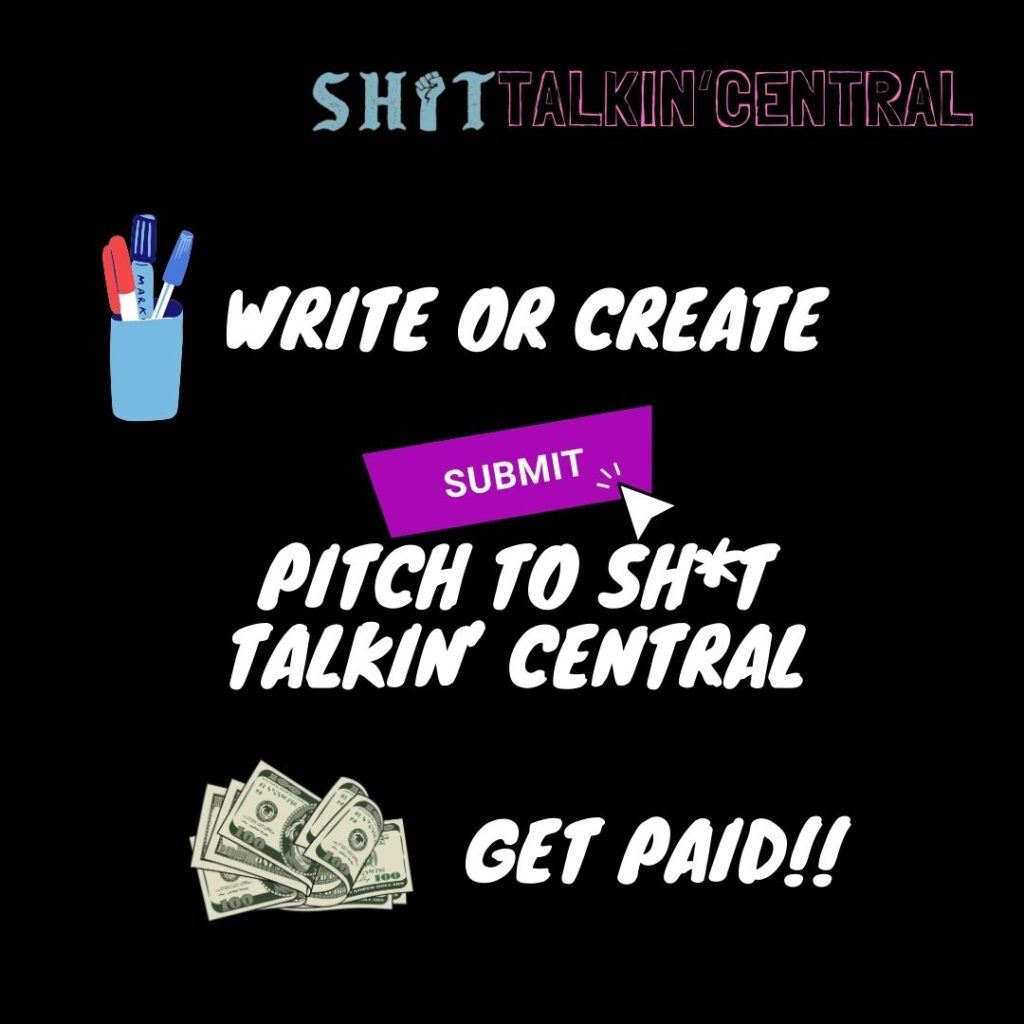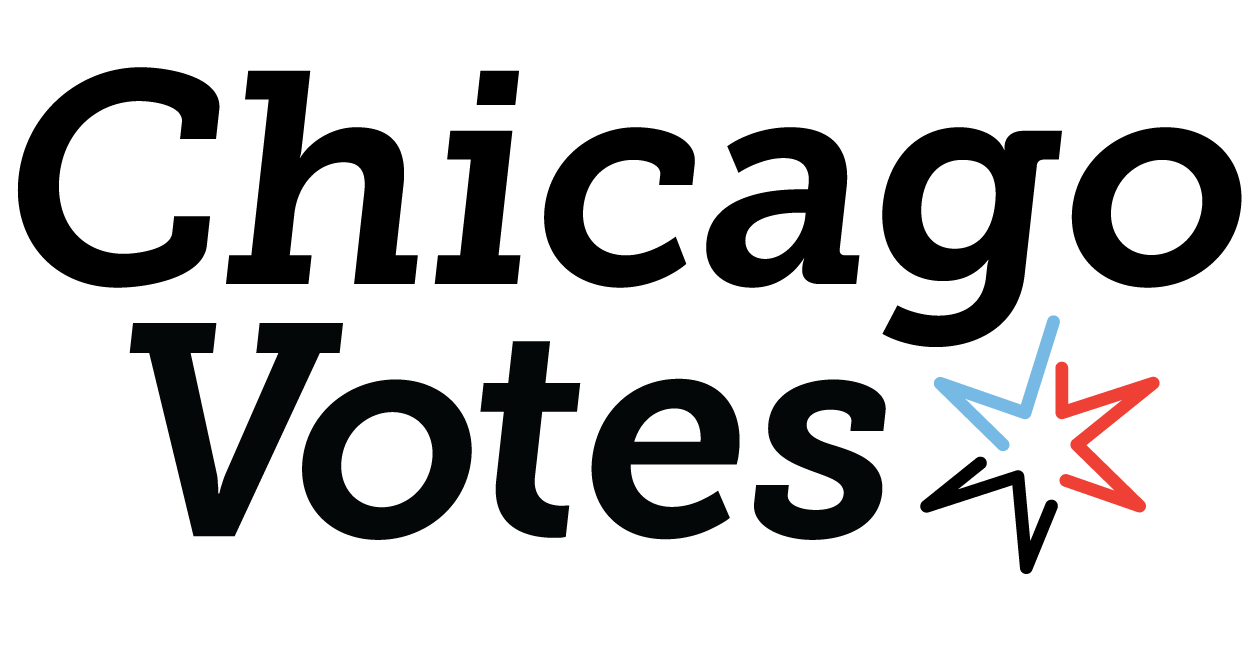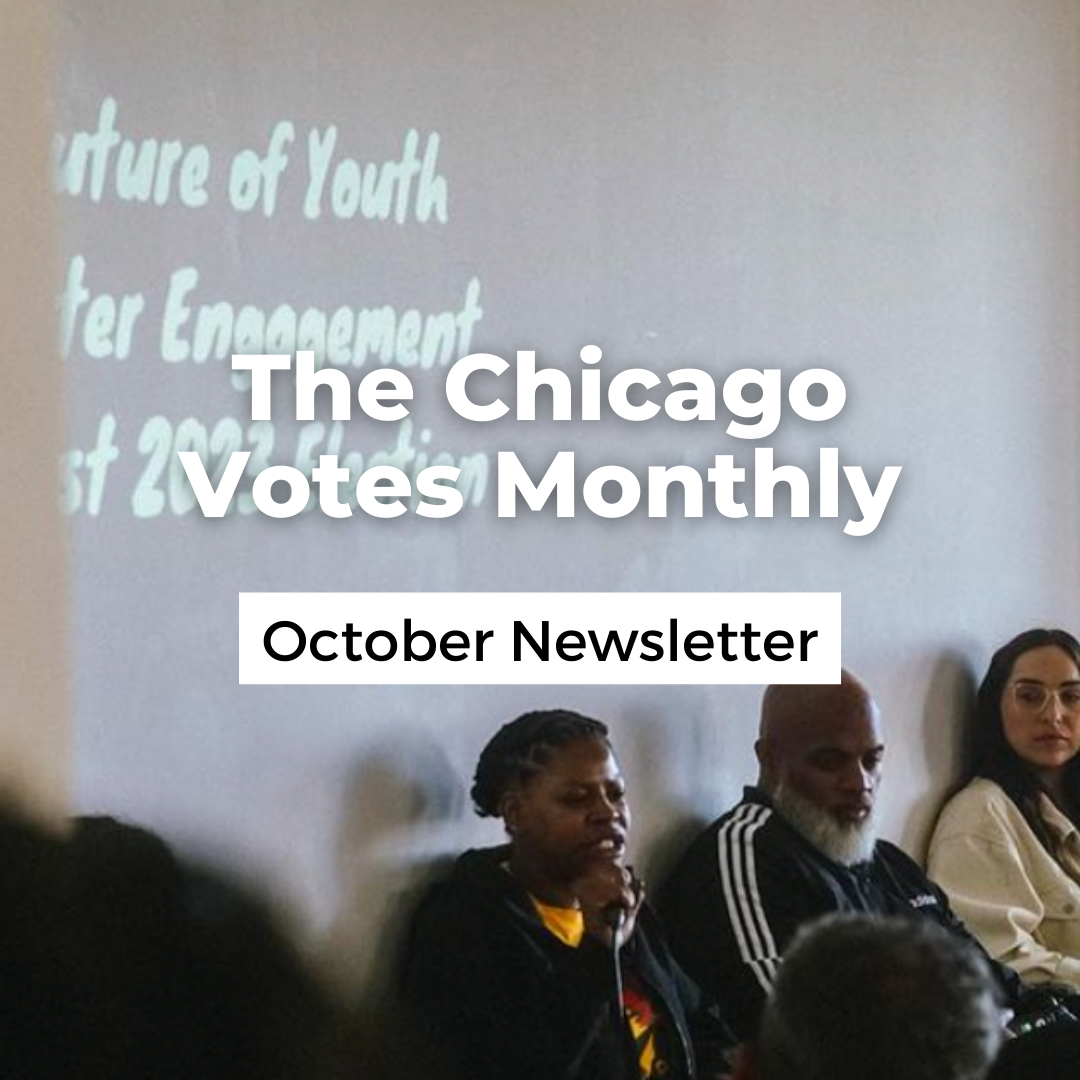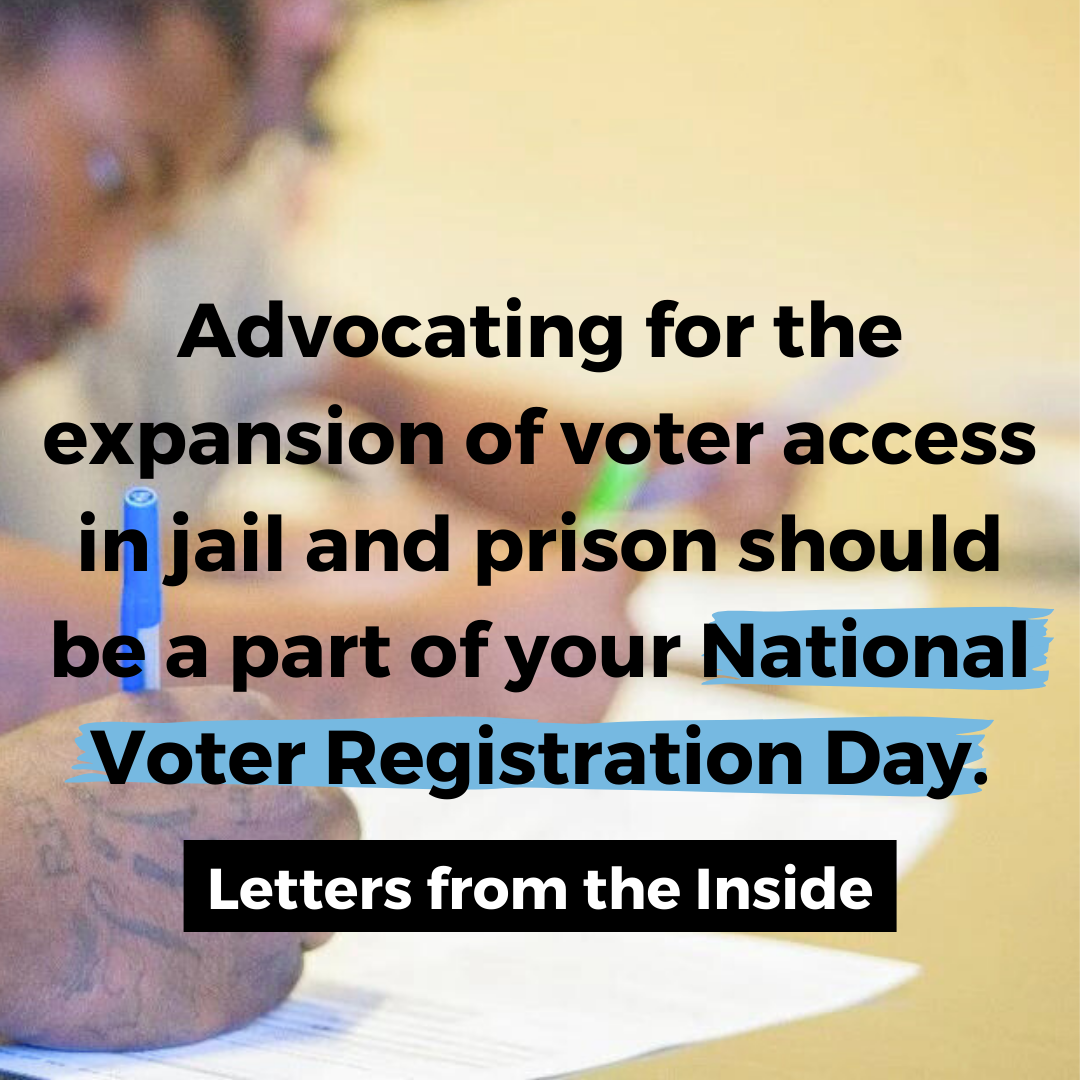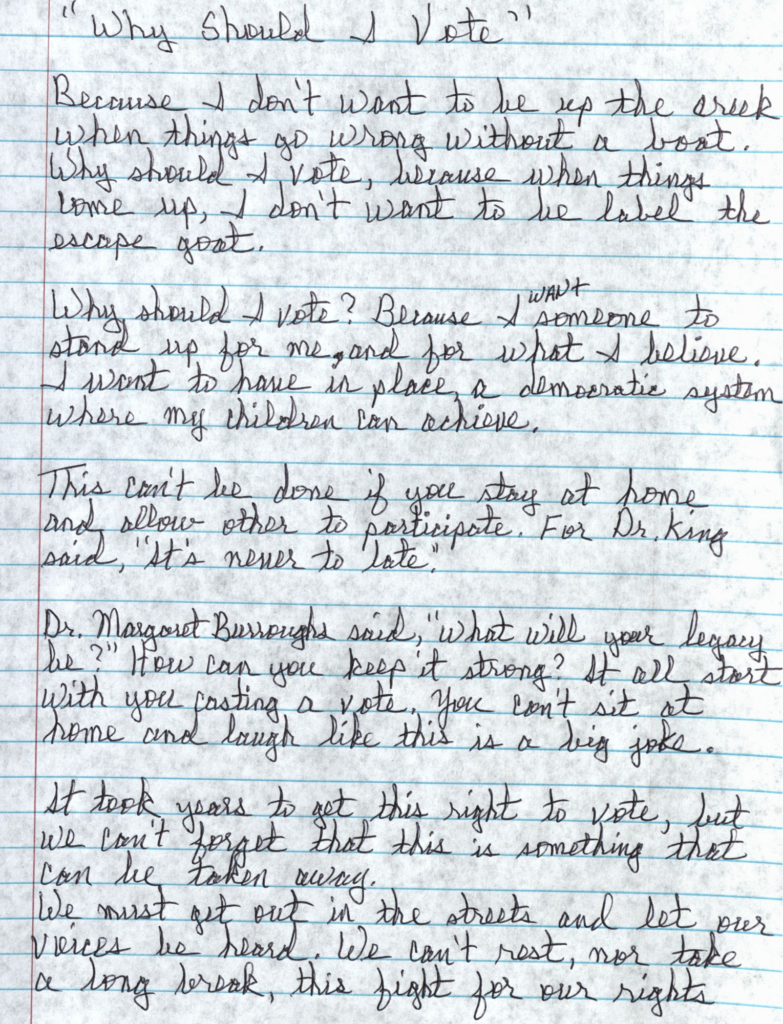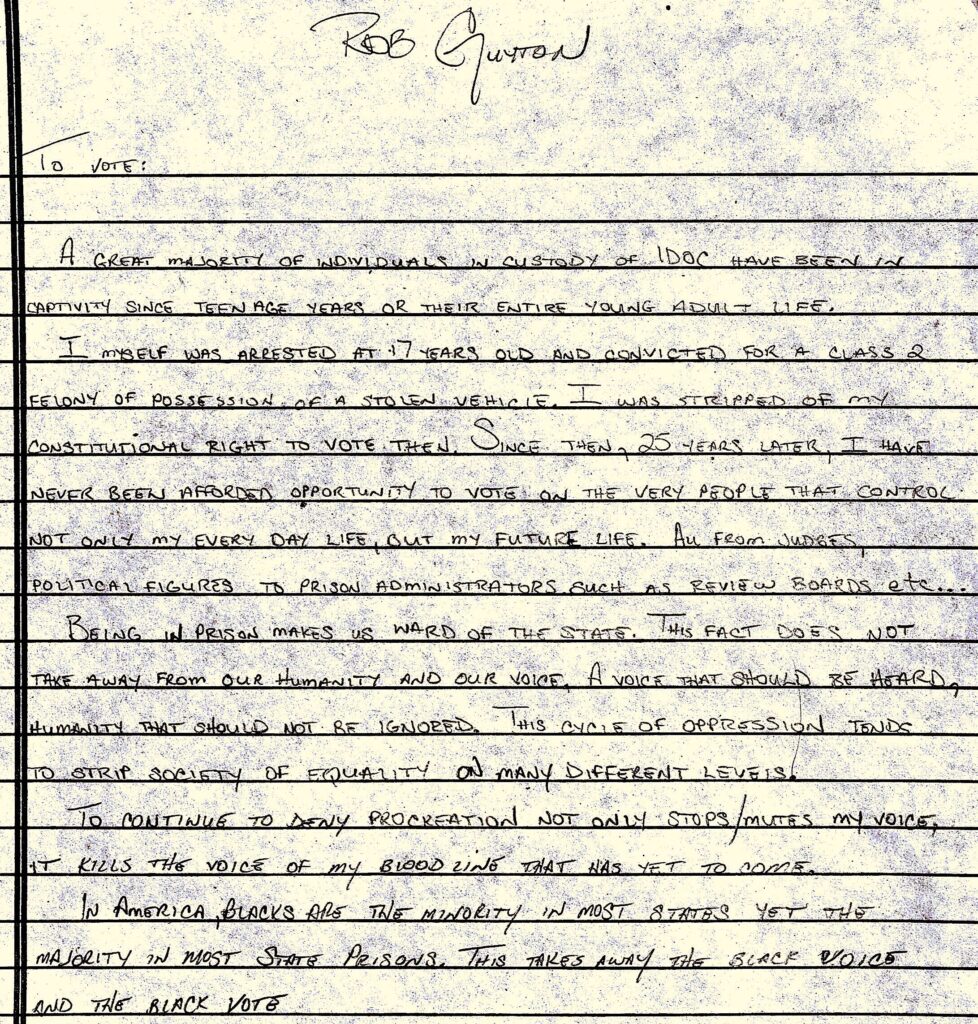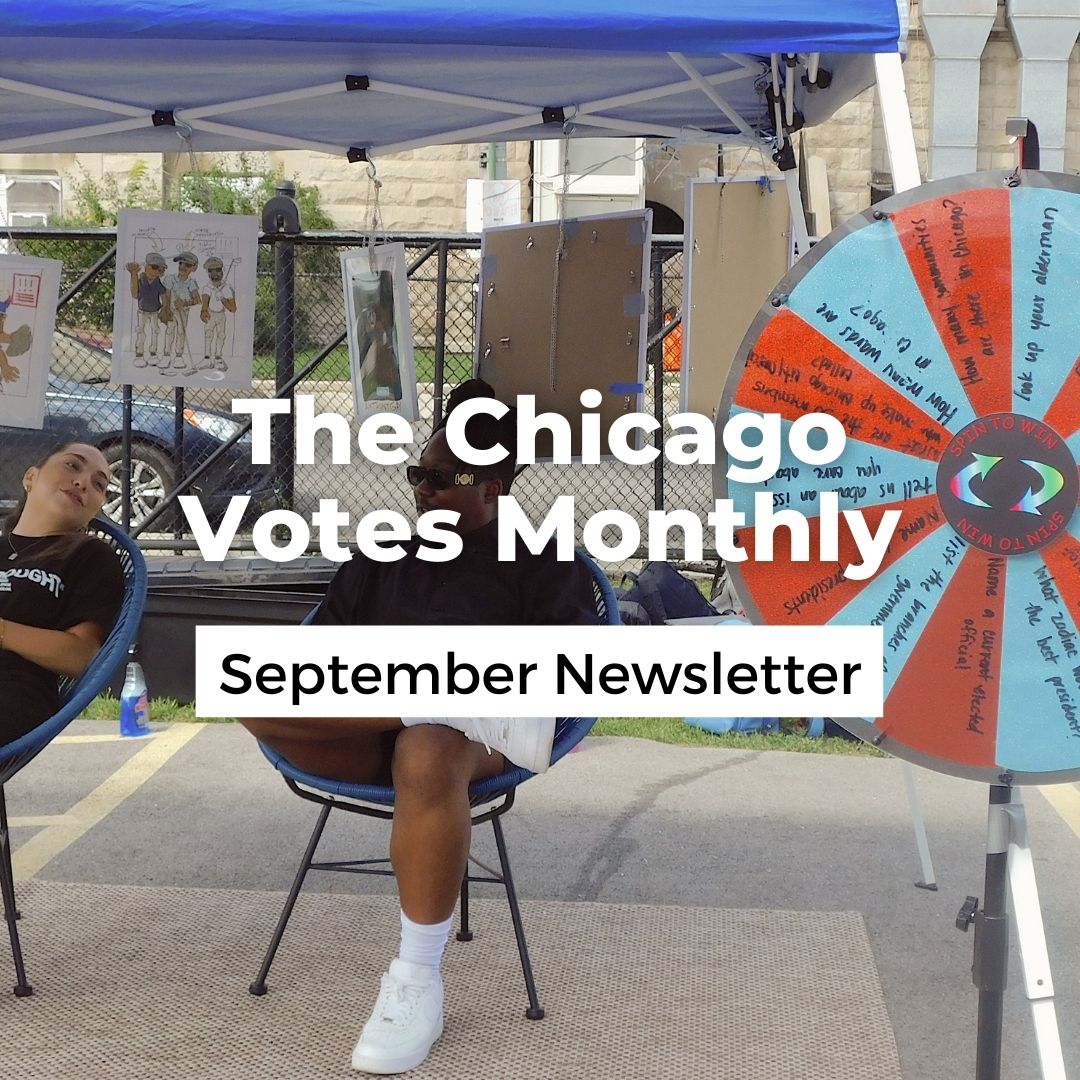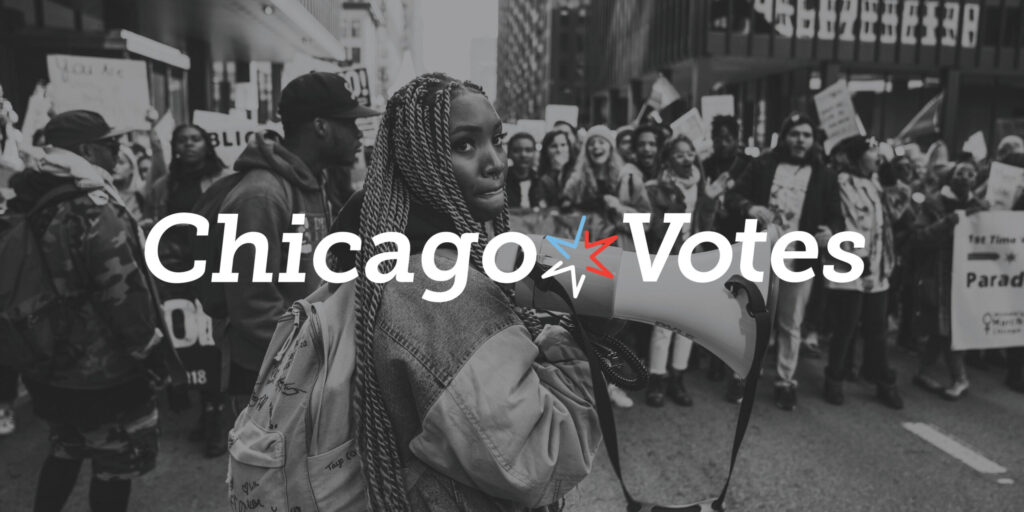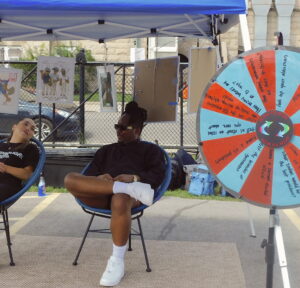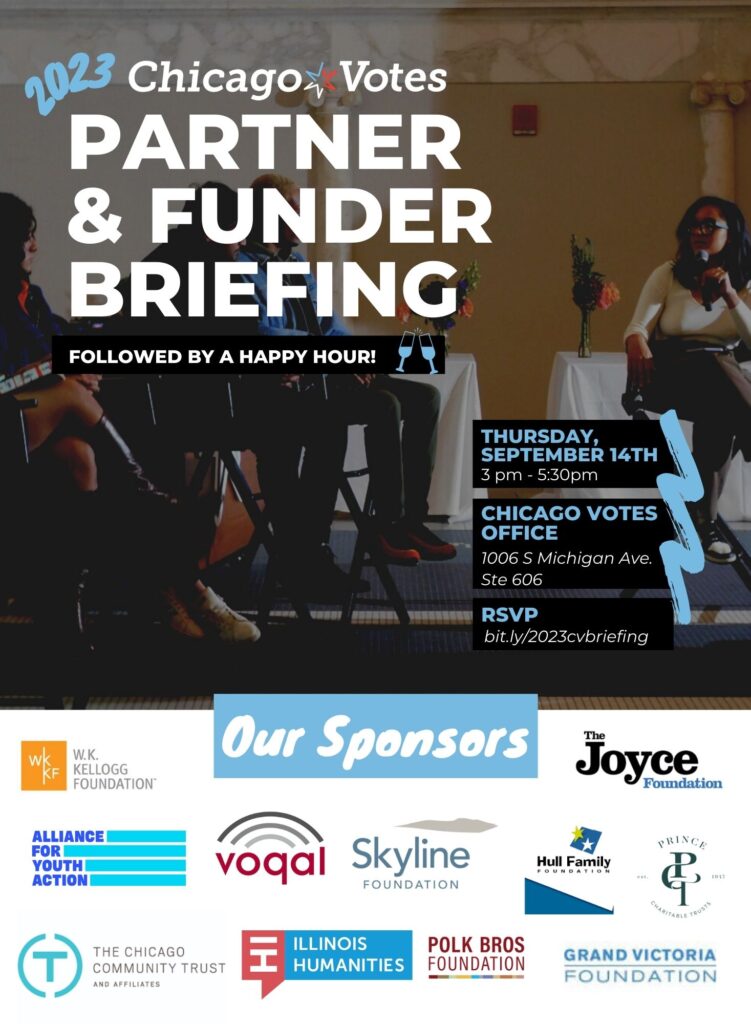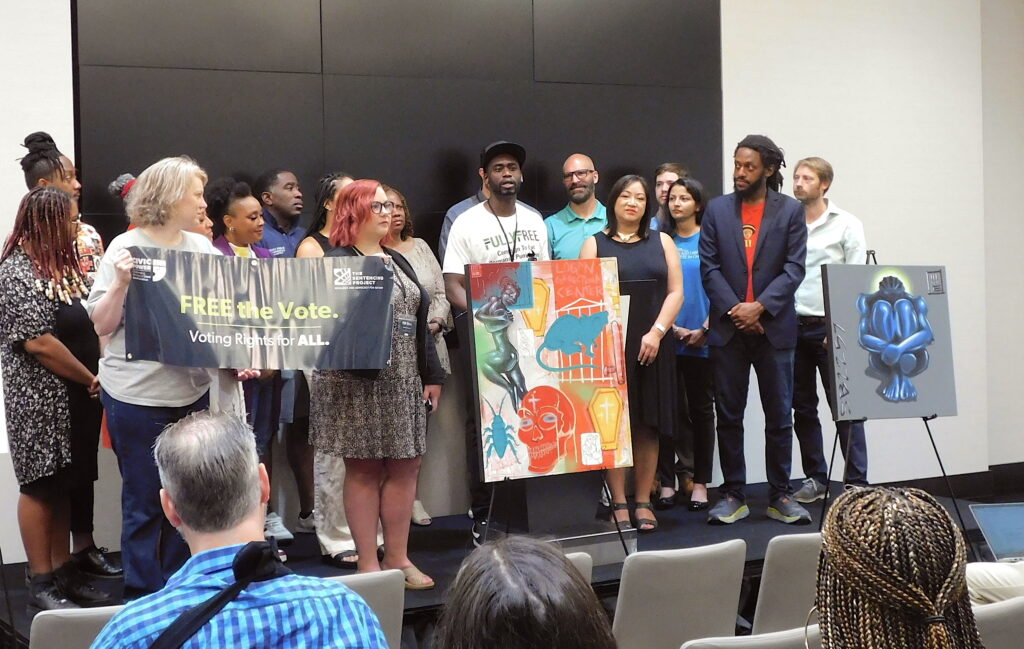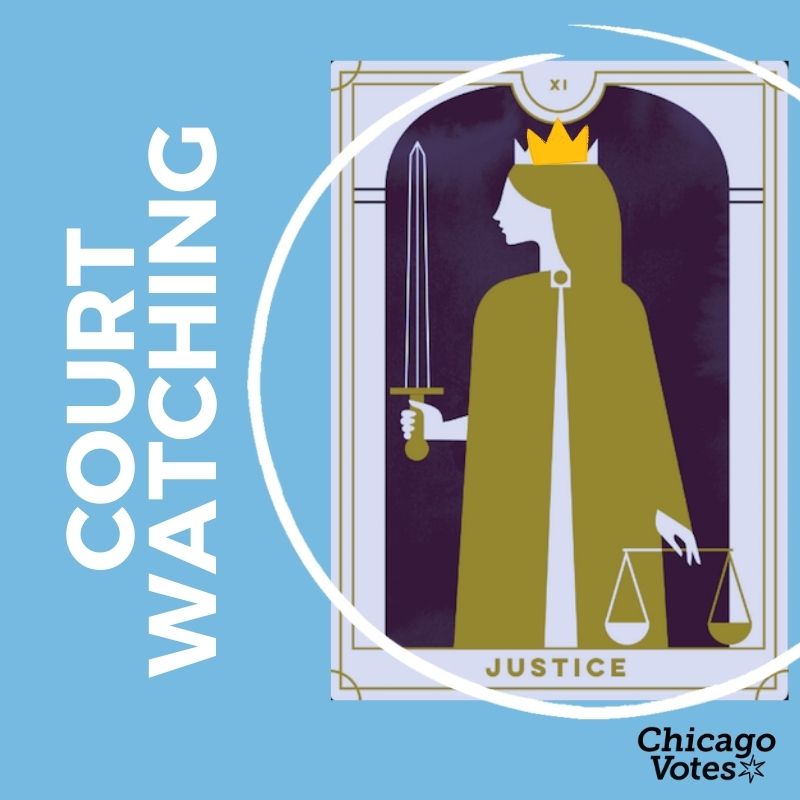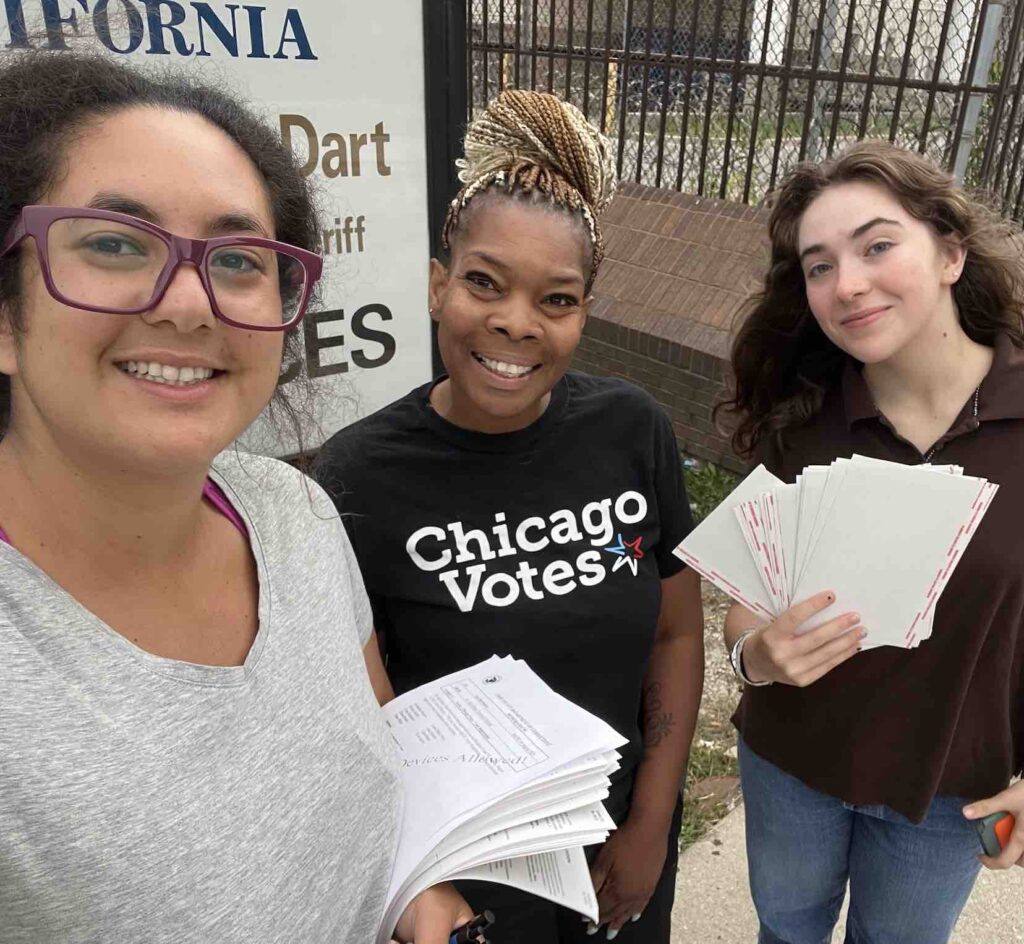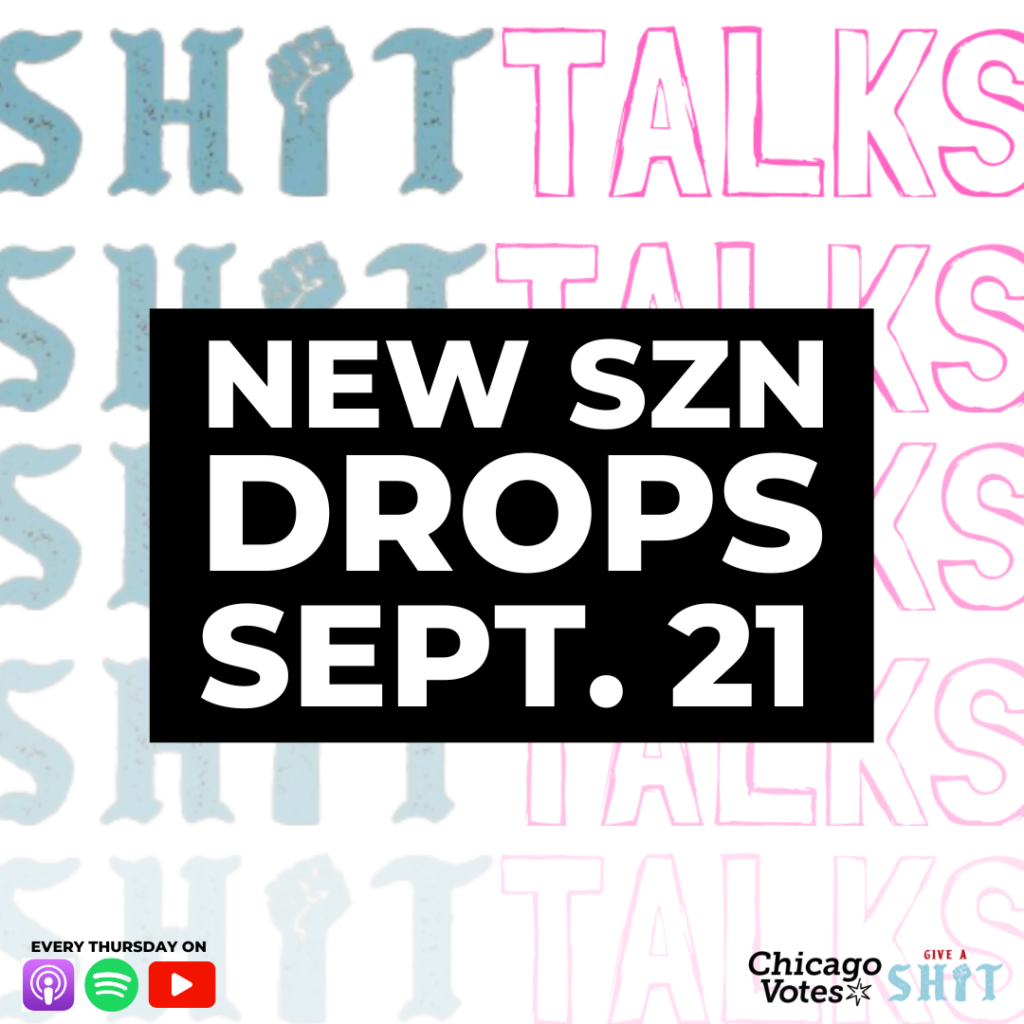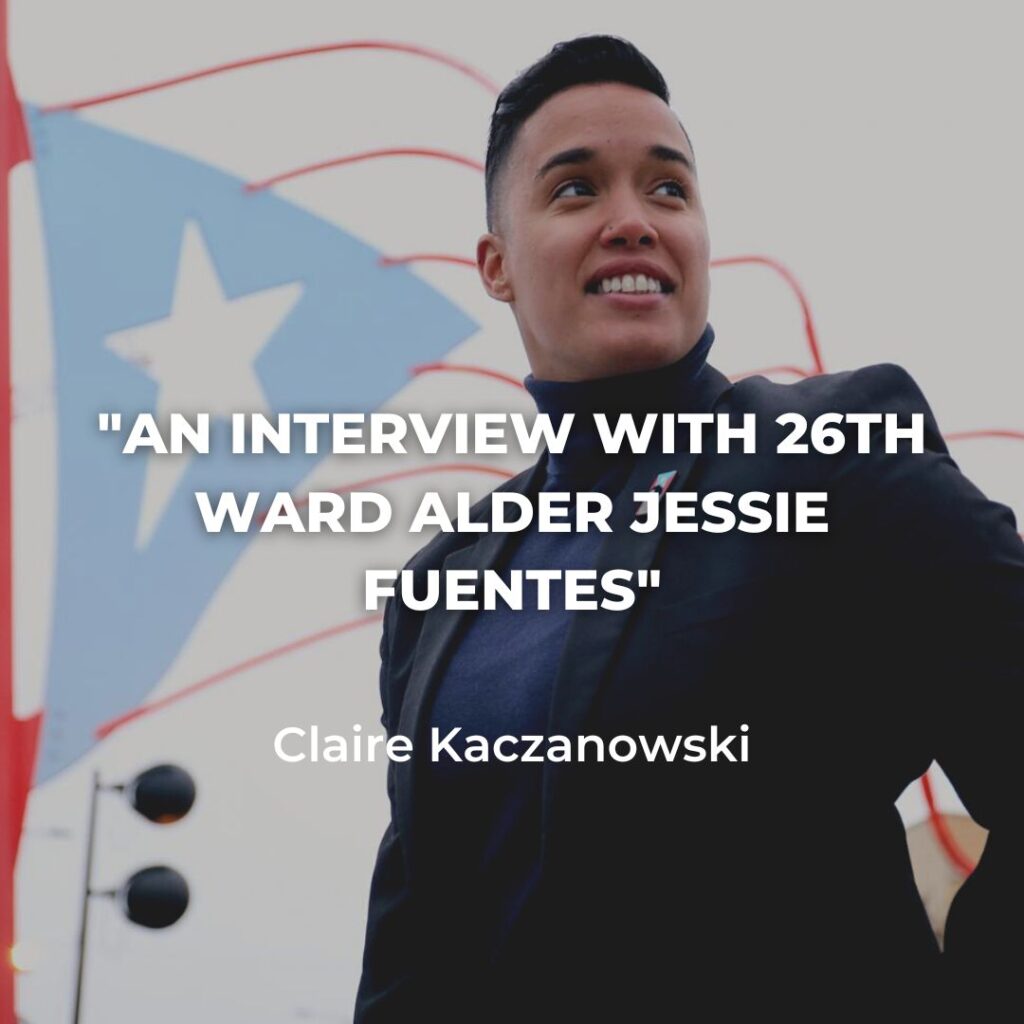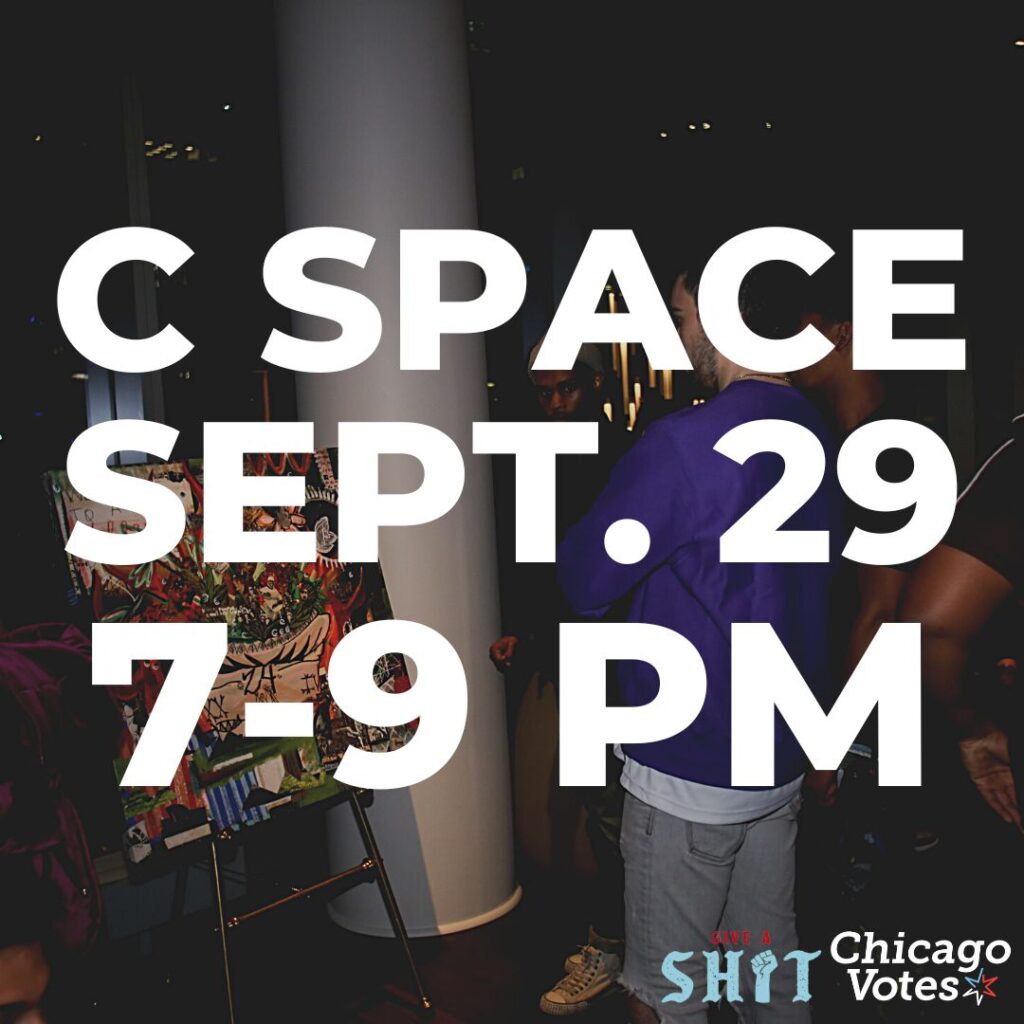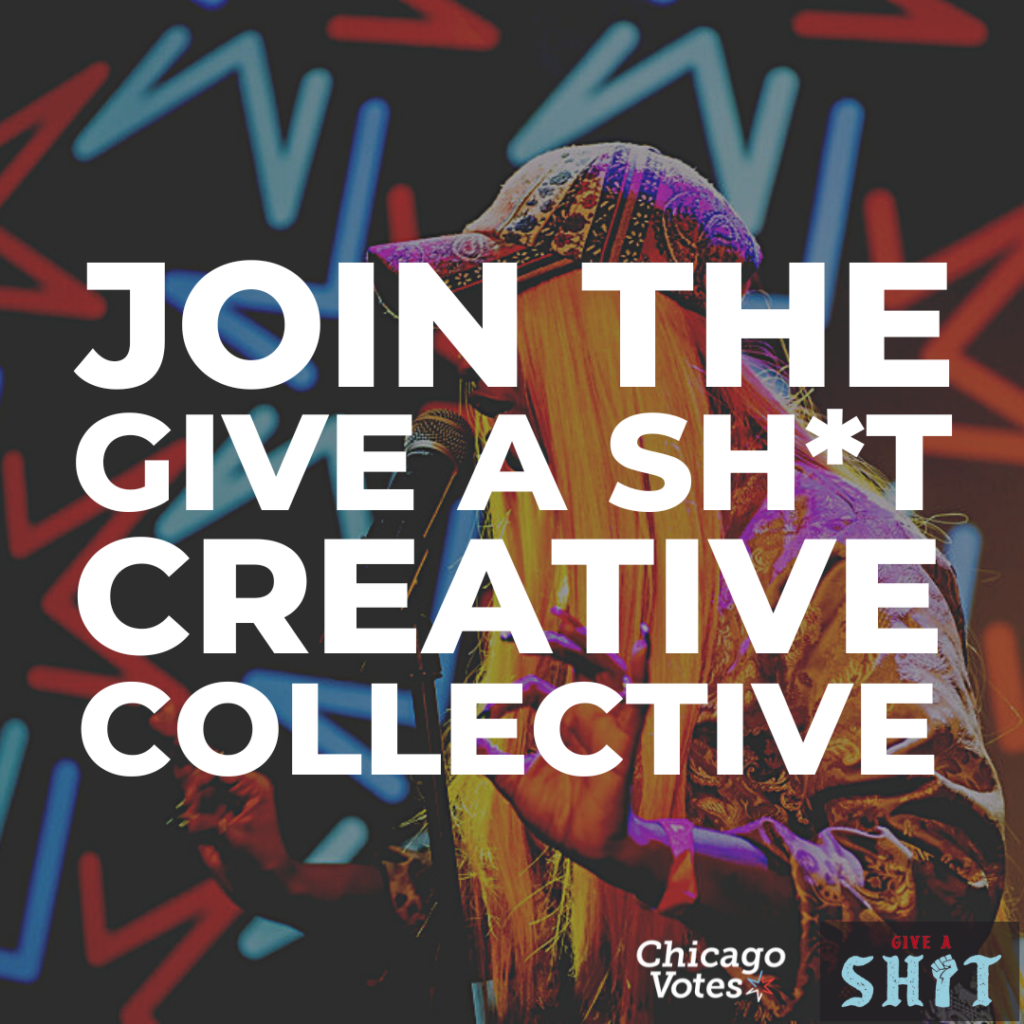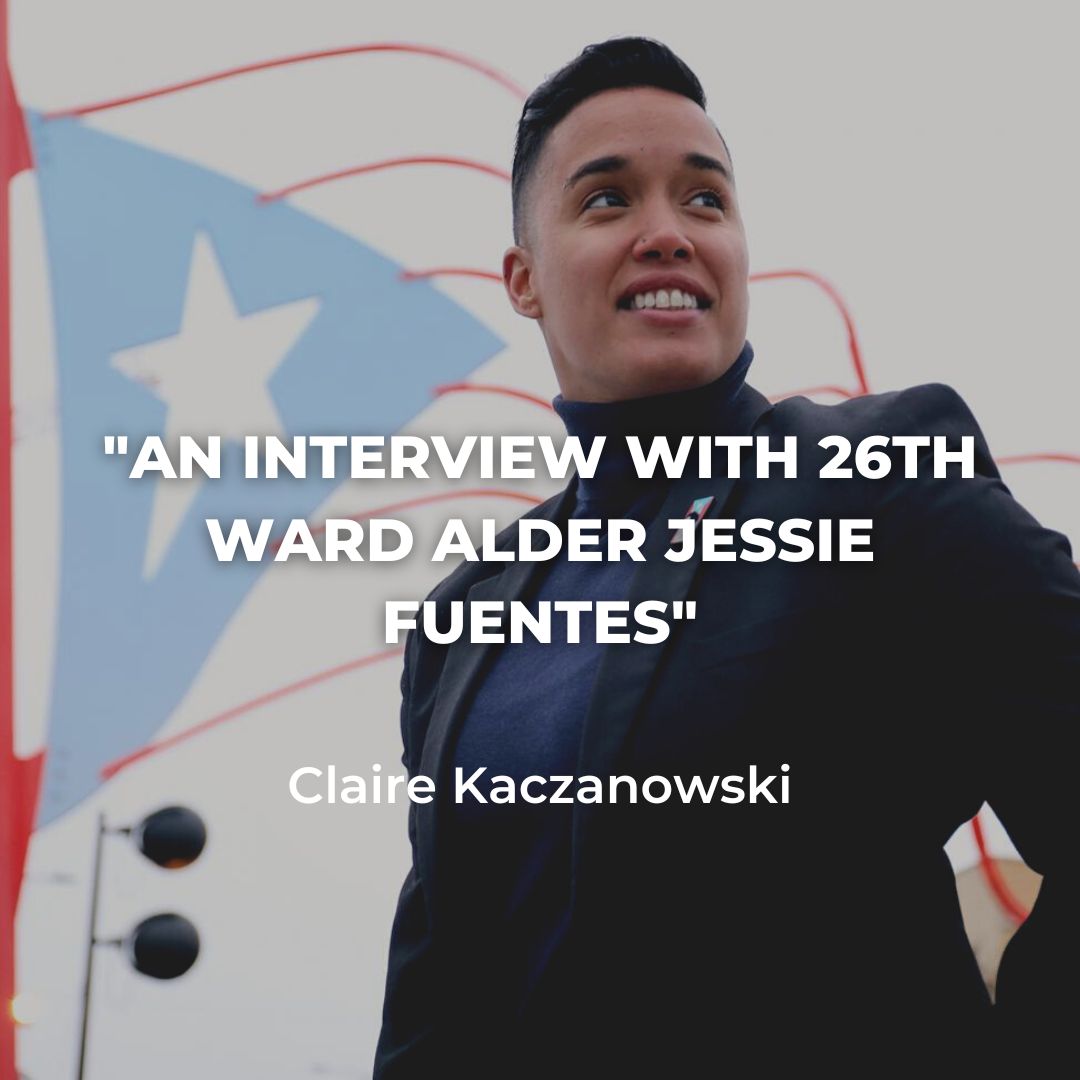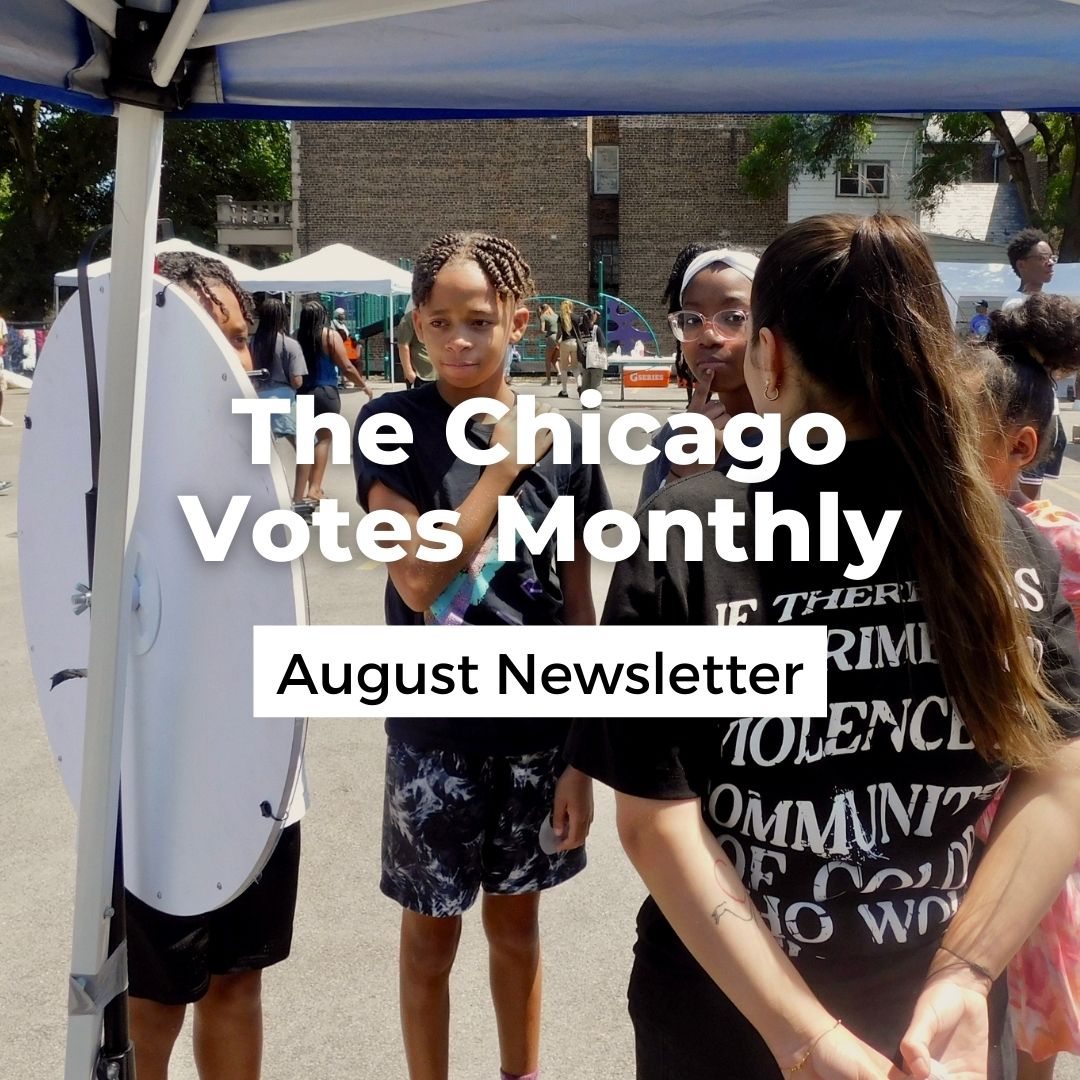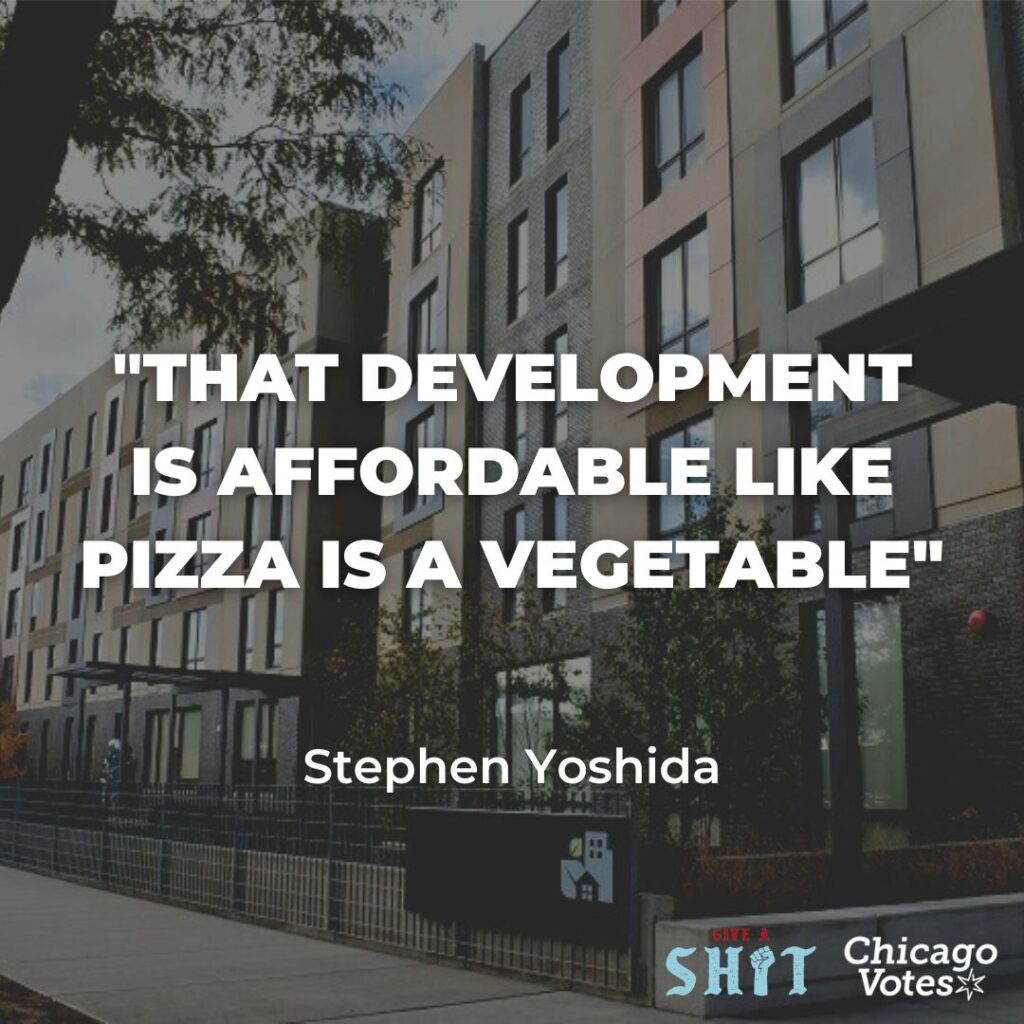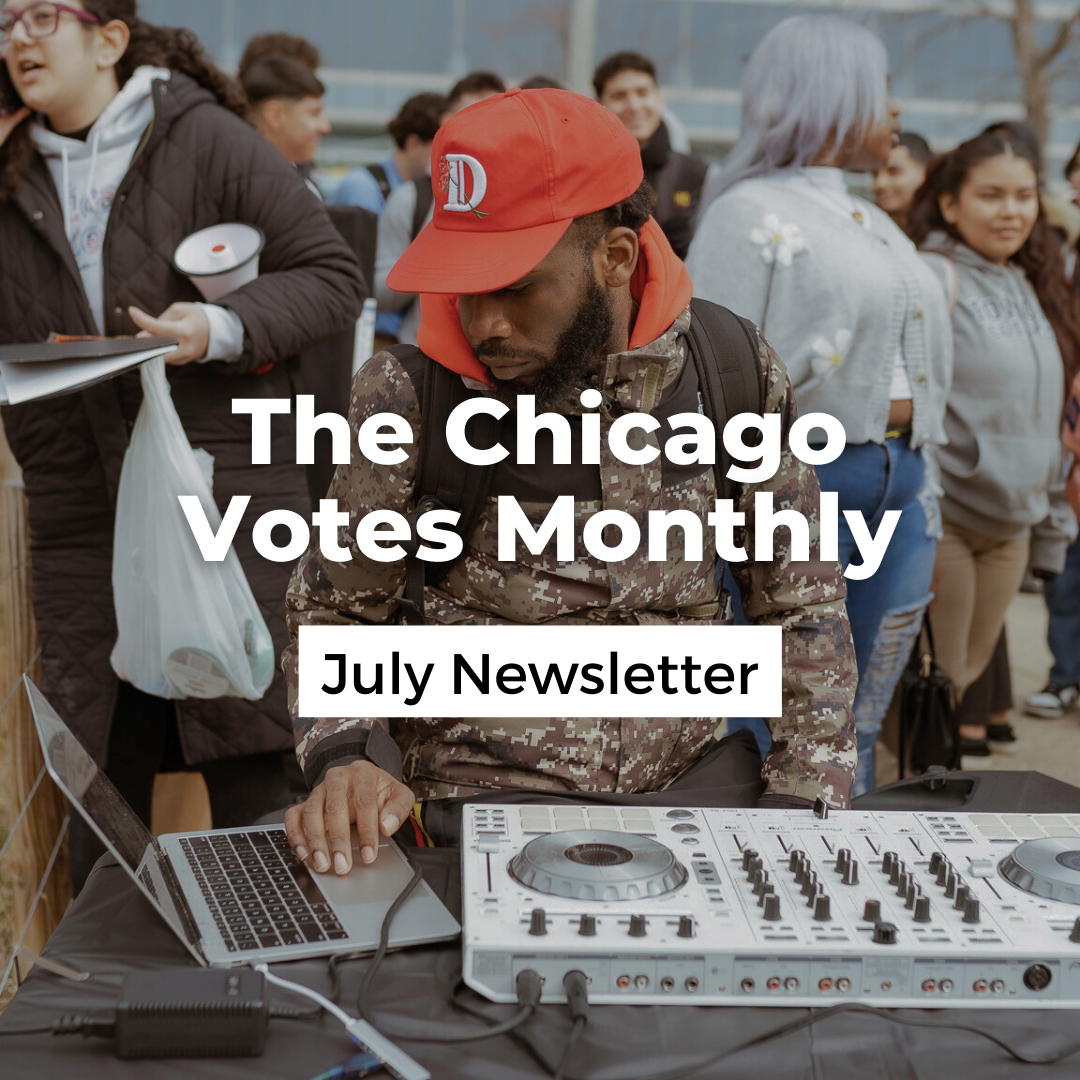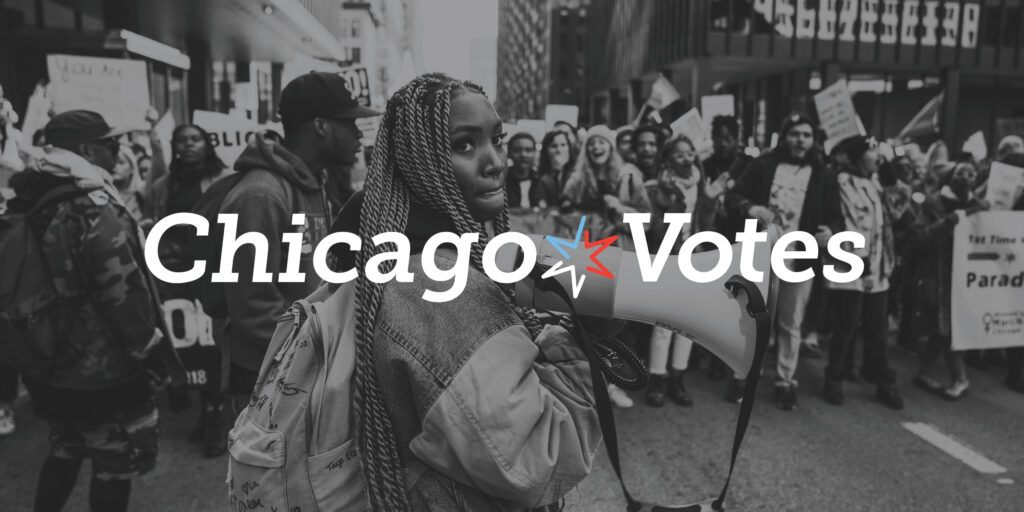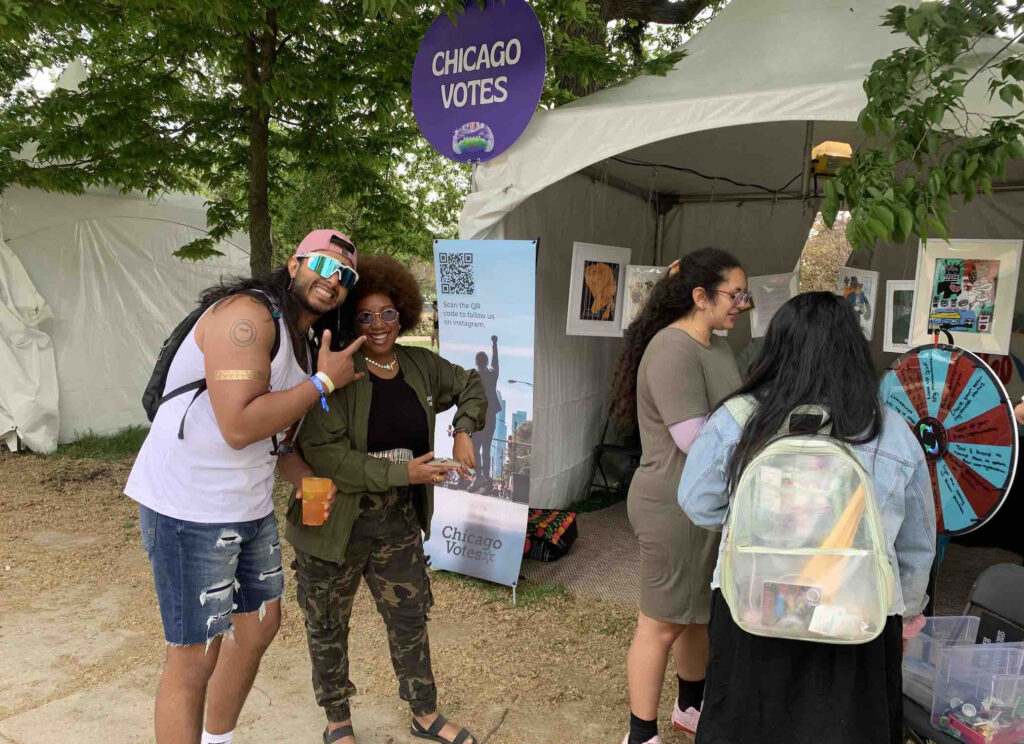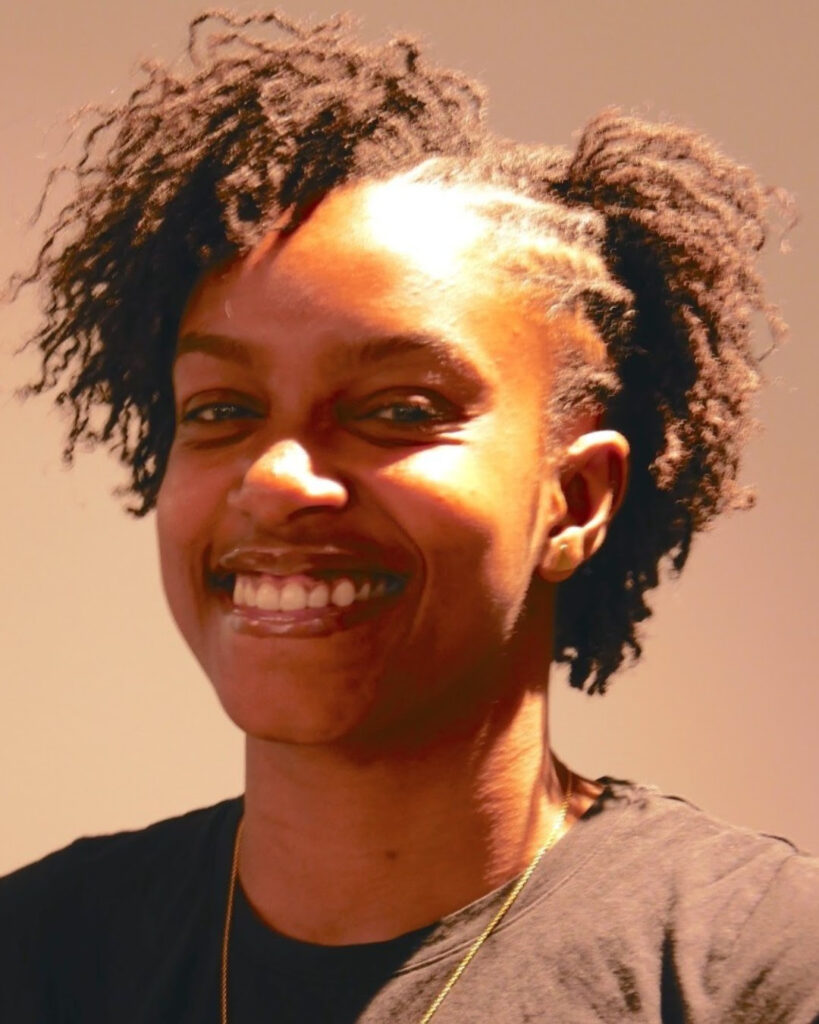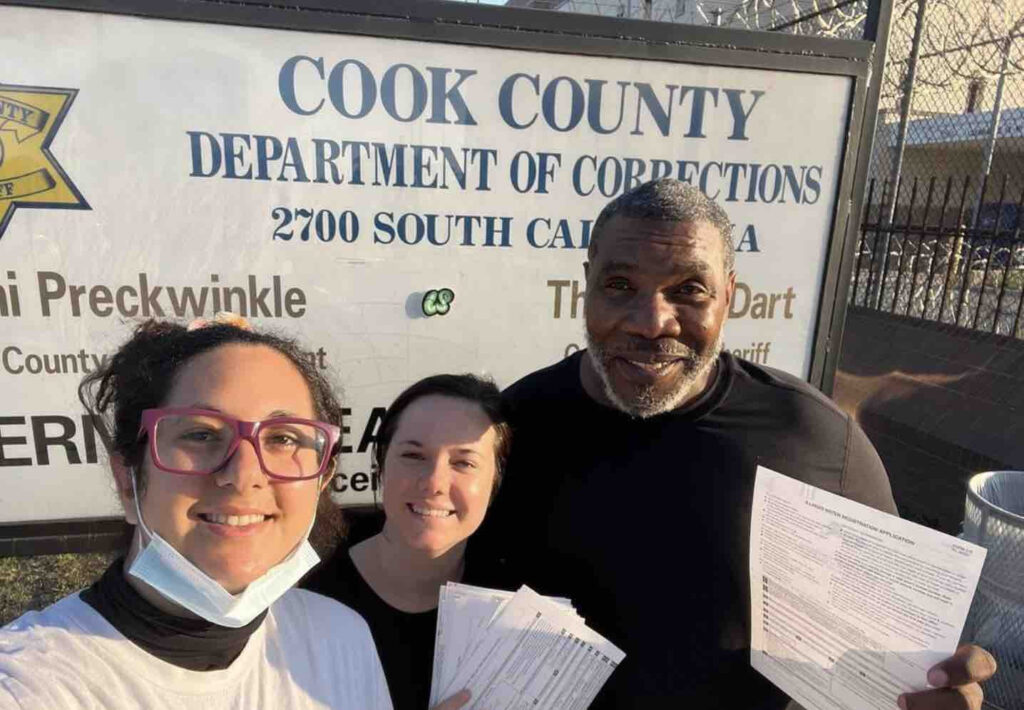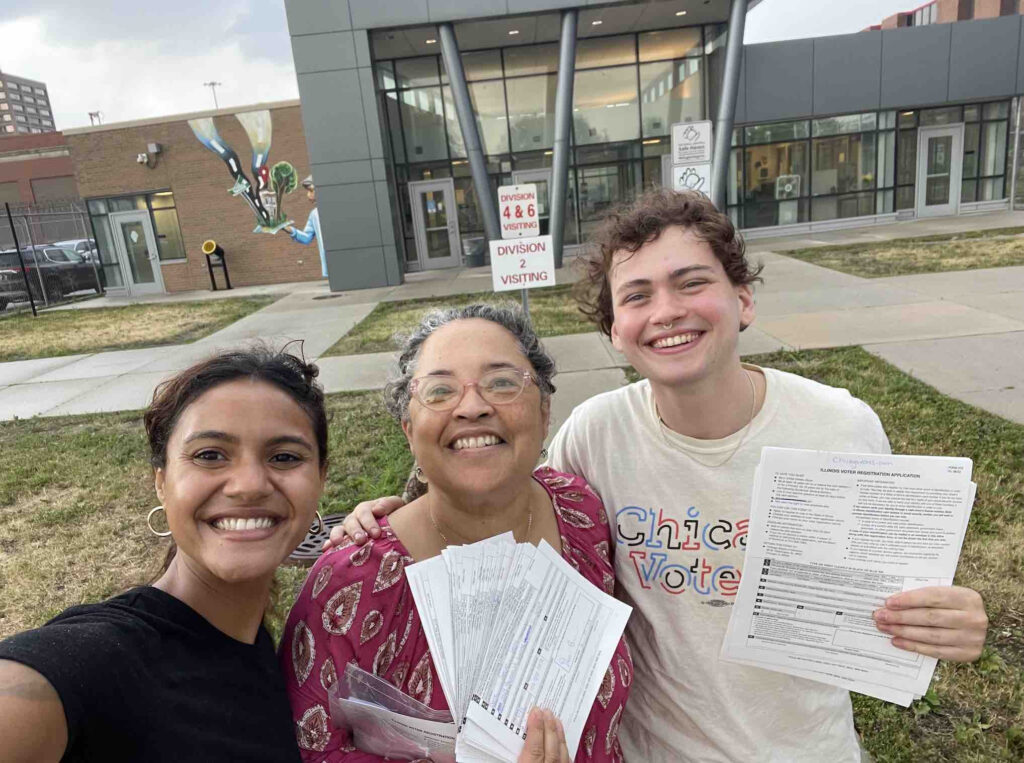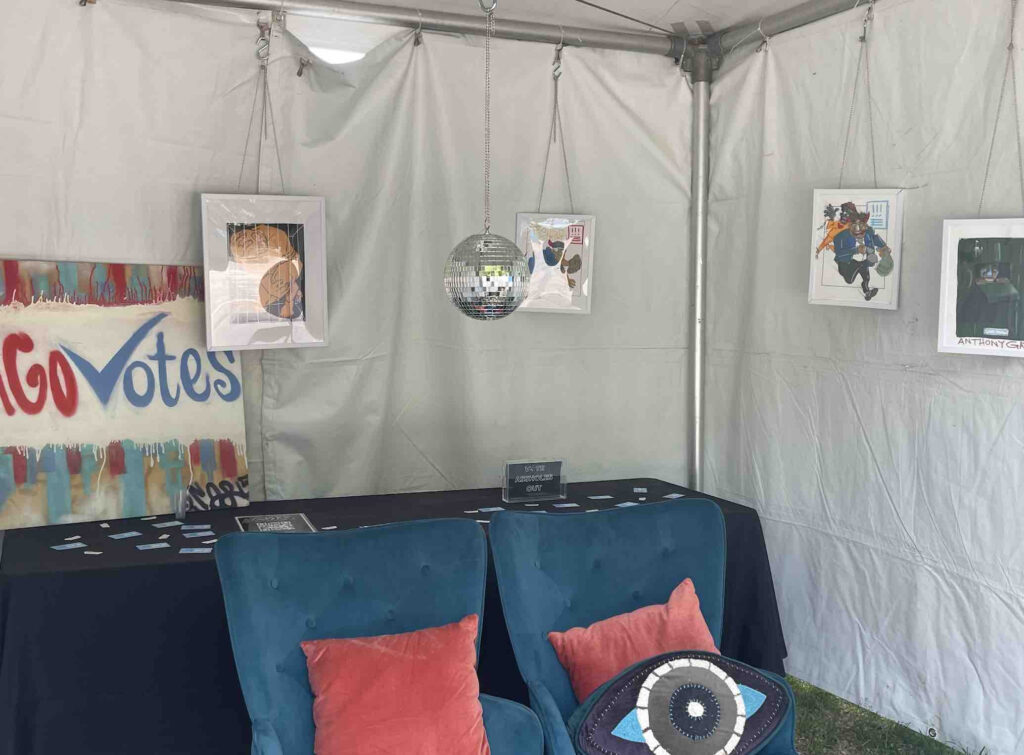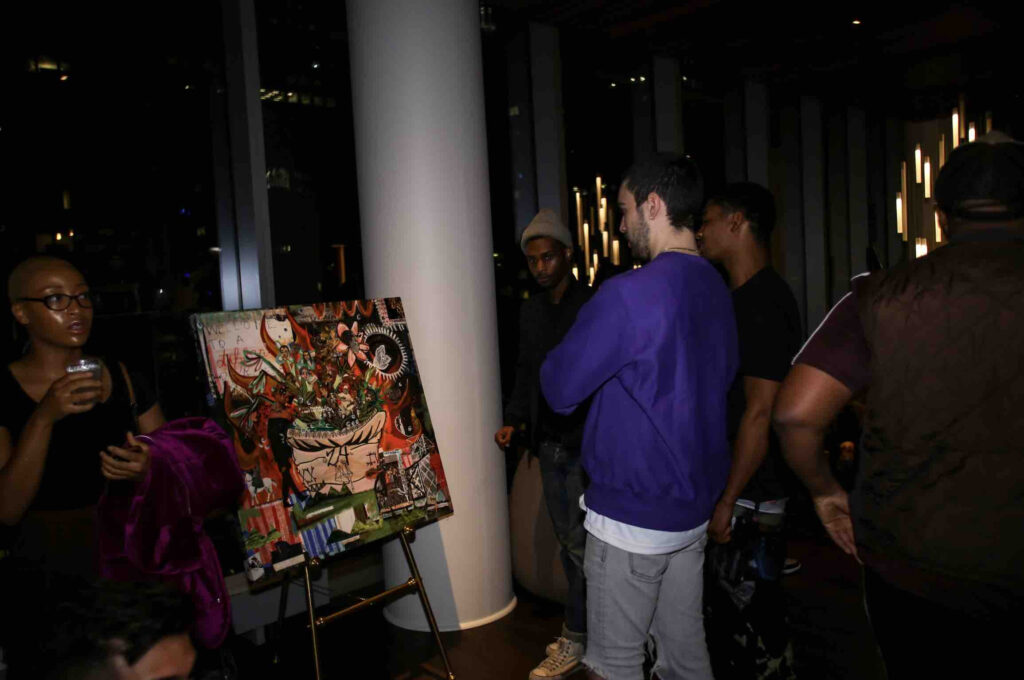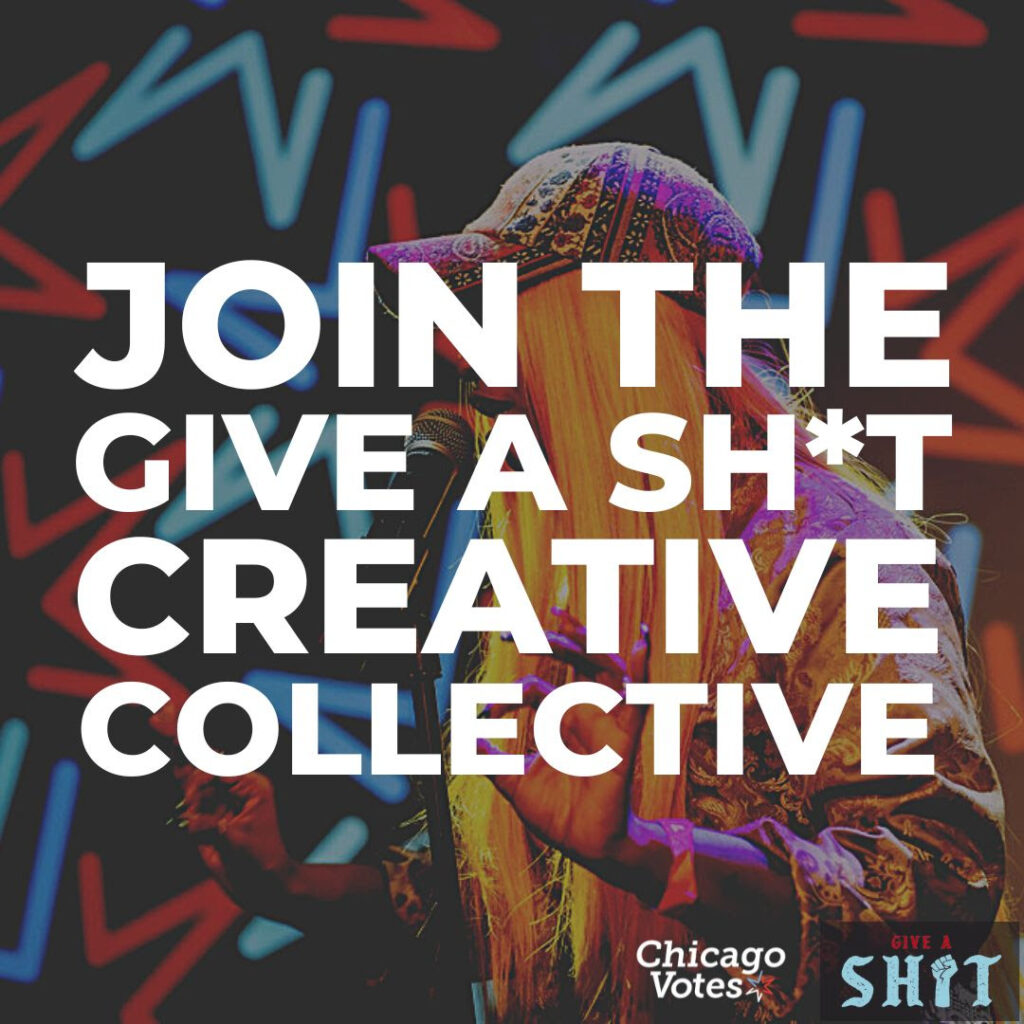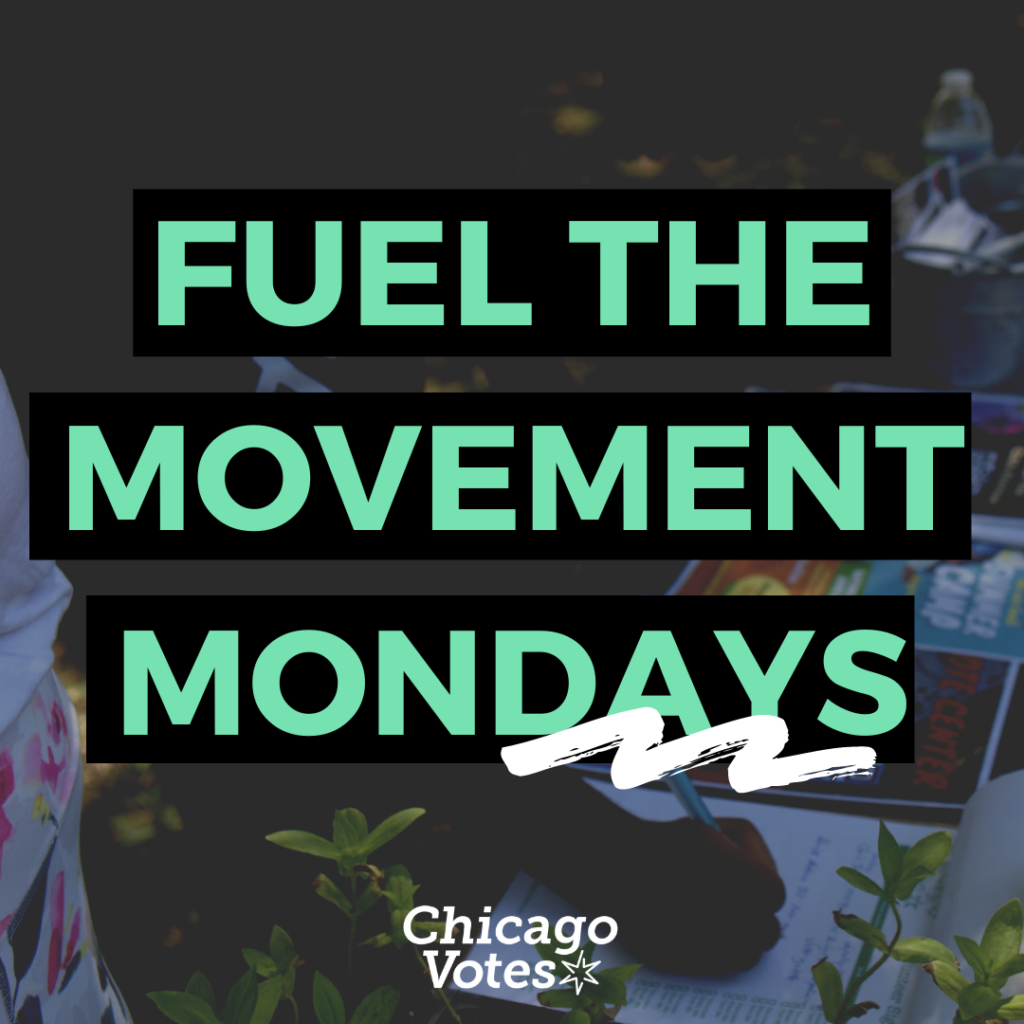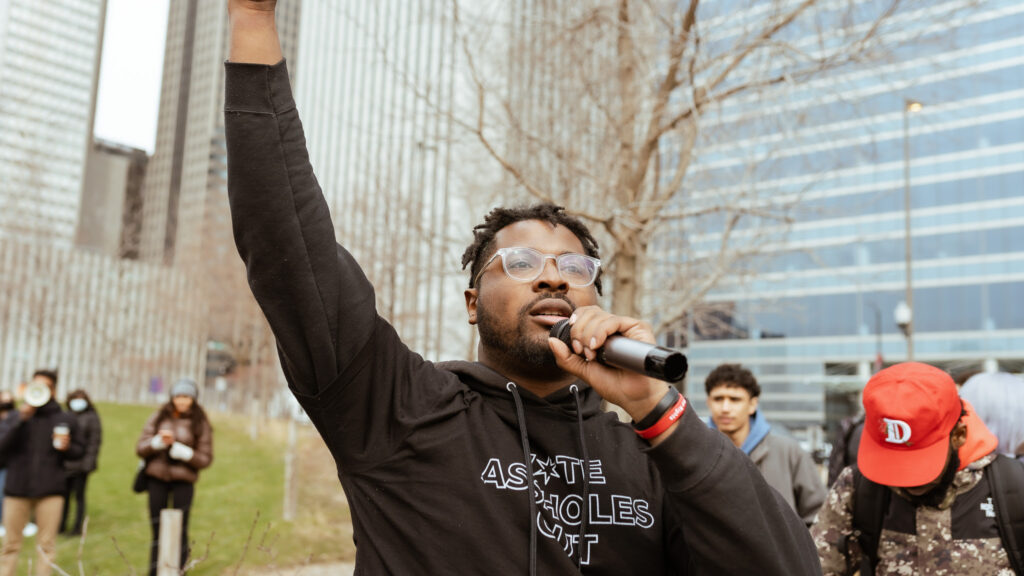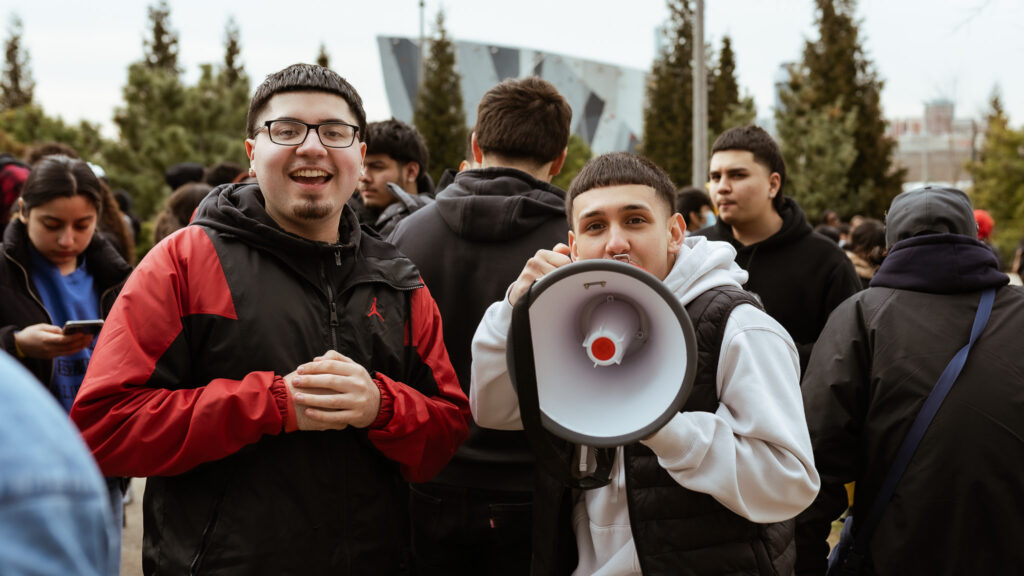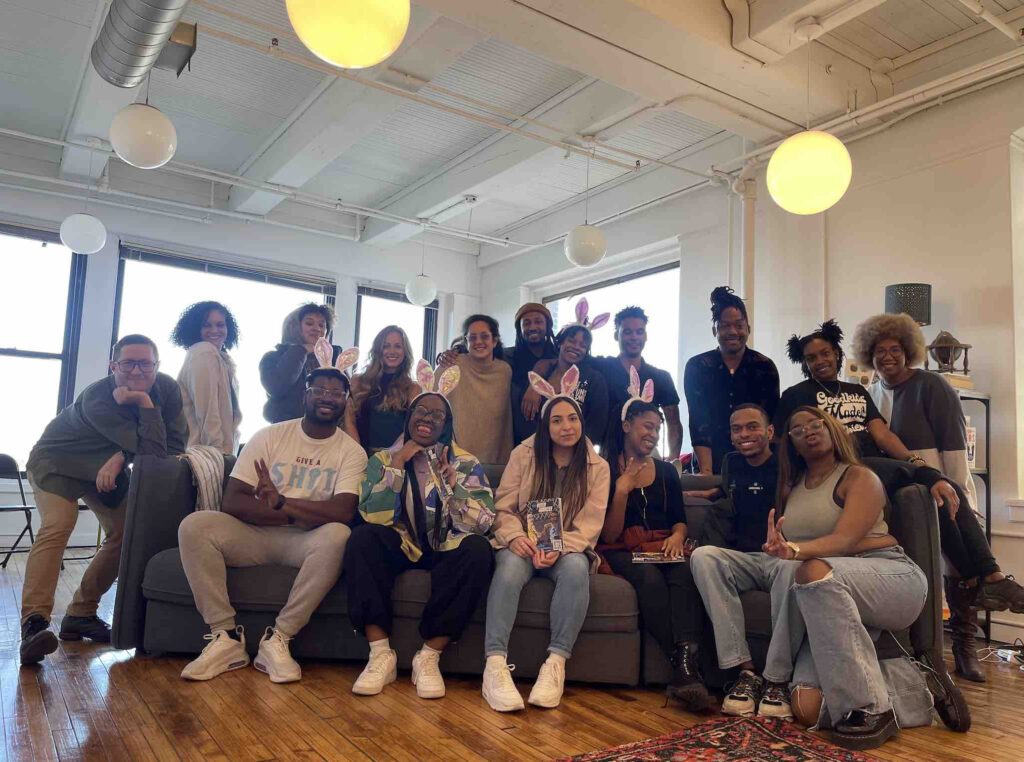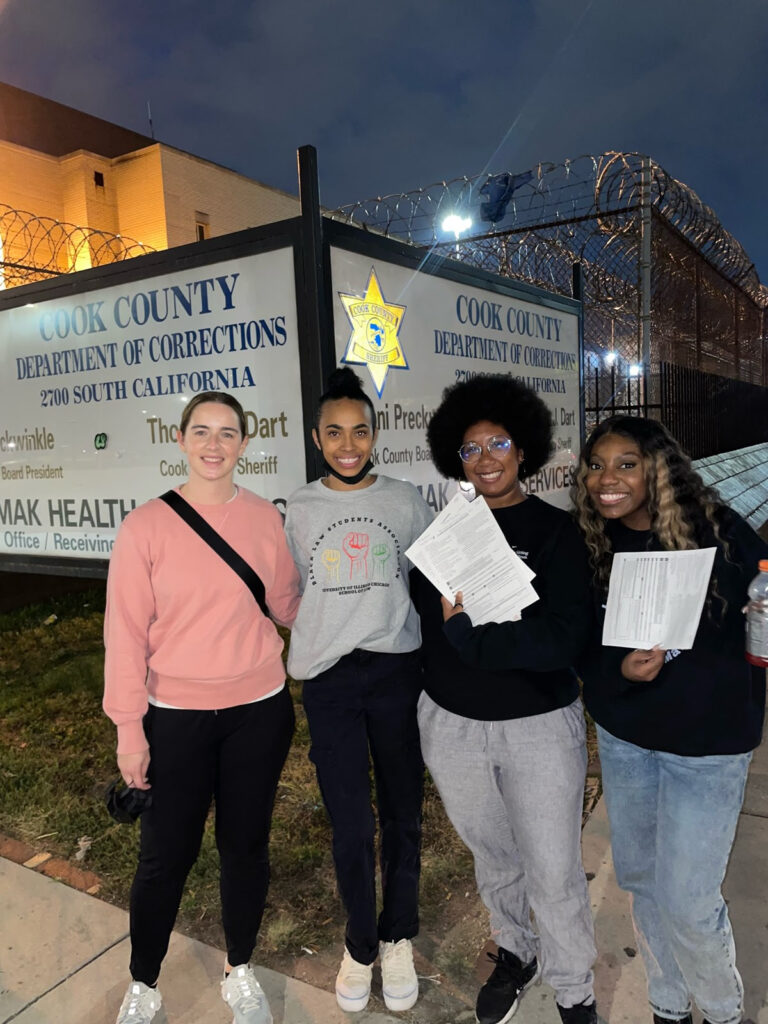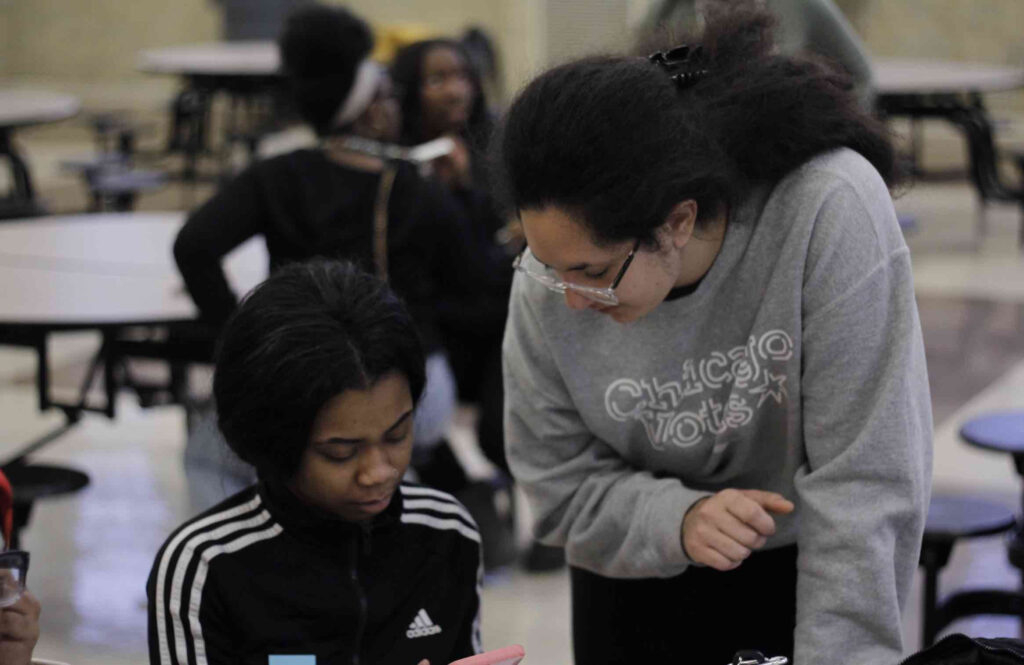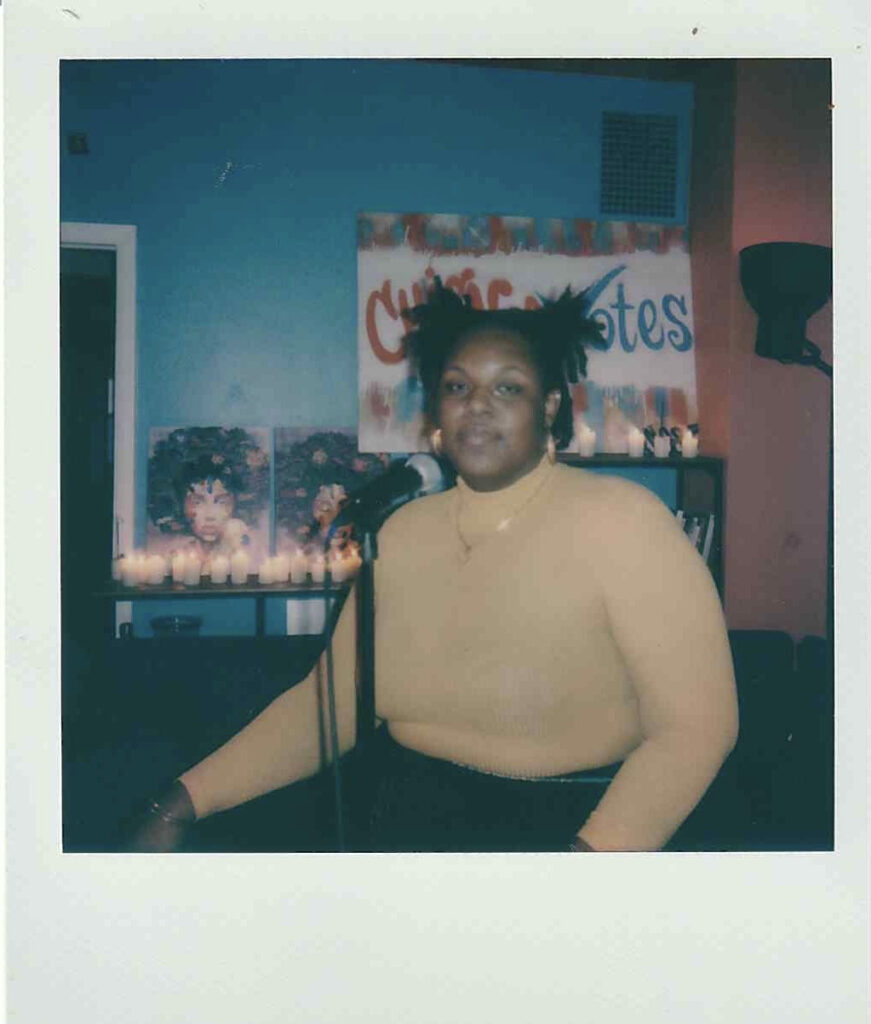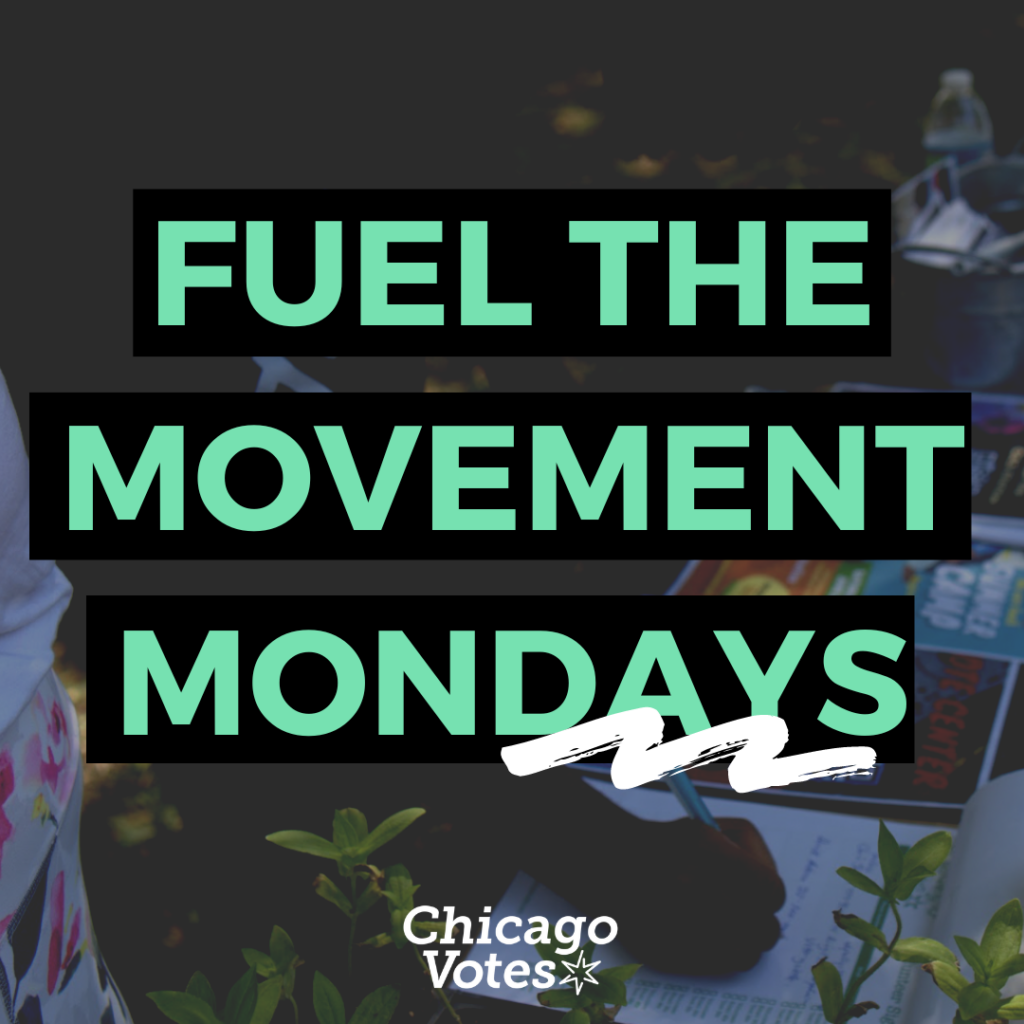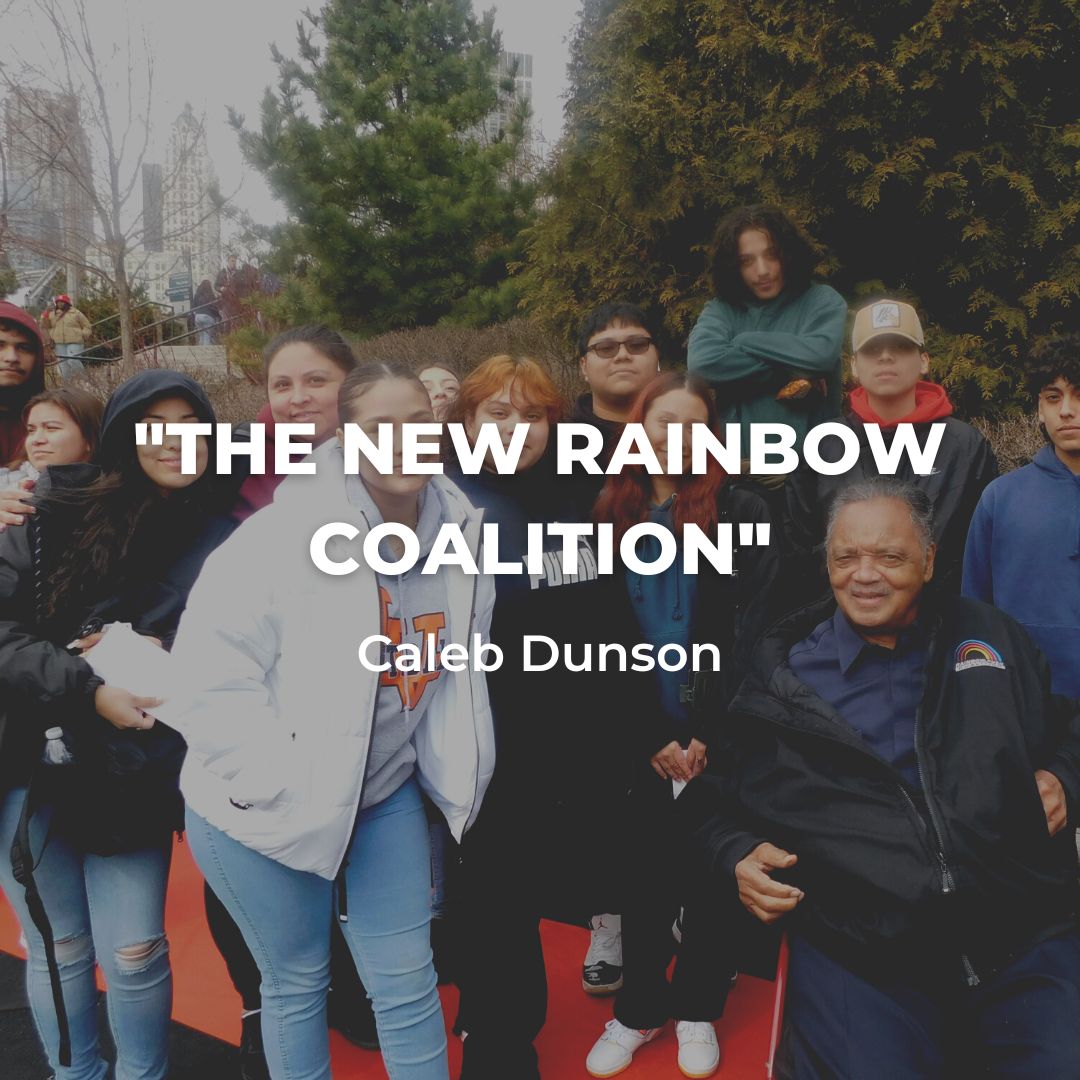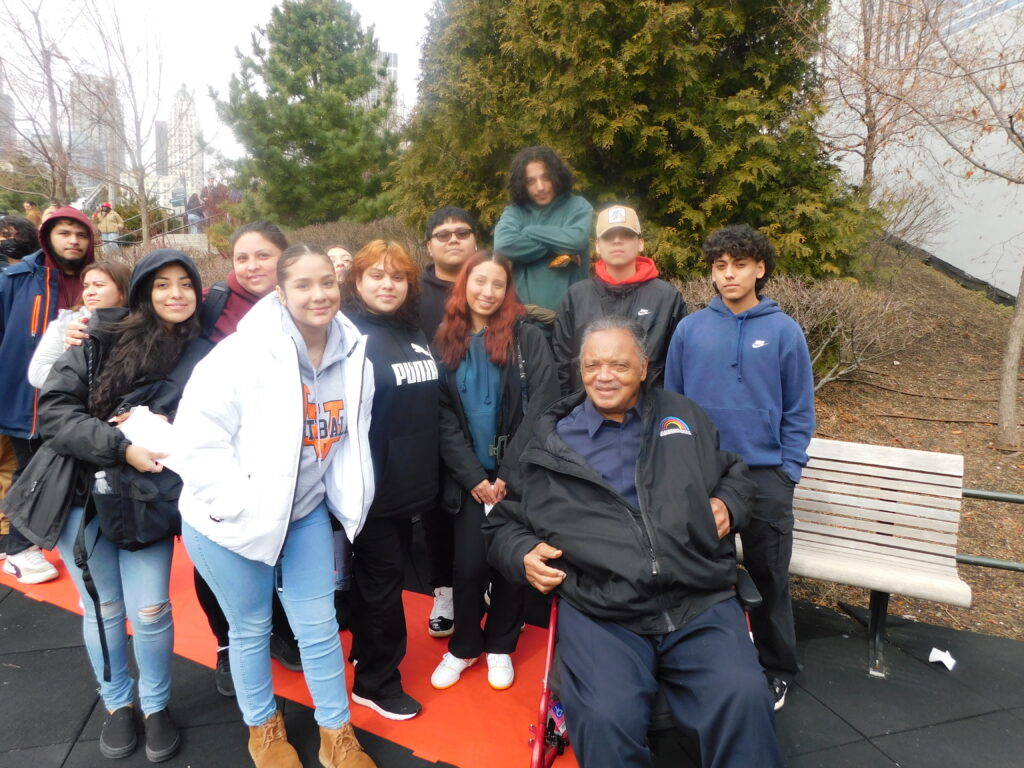
Spooky szn is here and we mean that in both the cutesy Halloween sense and in the sense that Earth is literally burning. Anyhoo, it’s October and we have lots of updates to share with you.
If you’re in a hurry, here are the topline items to know!
- You’re invited to our Give A Sh*t Happy Hour: Chicago City Budget, co-hosted with City Bureau! It’s at our office (1006 S. Michigan Ave) on Wednesday, October 18th from 6:30-8:30pm.
- New Sh*t Talks are out and will keep dropping every Thursday at 8pm! Watch Sh*t Talks on Youtube or listen to them wherever you stream your podcasts.
- We are looking for more #UnlockCivics volunteers! Interested in observing Cook County judges? Join Court Watching. Want to register people inside Cook County Jail to vote? Join CCJ Votes. You can even join both!
If you have a little more time, keep reading for more ways to plug into Chicago Votes’ movement work in the city!
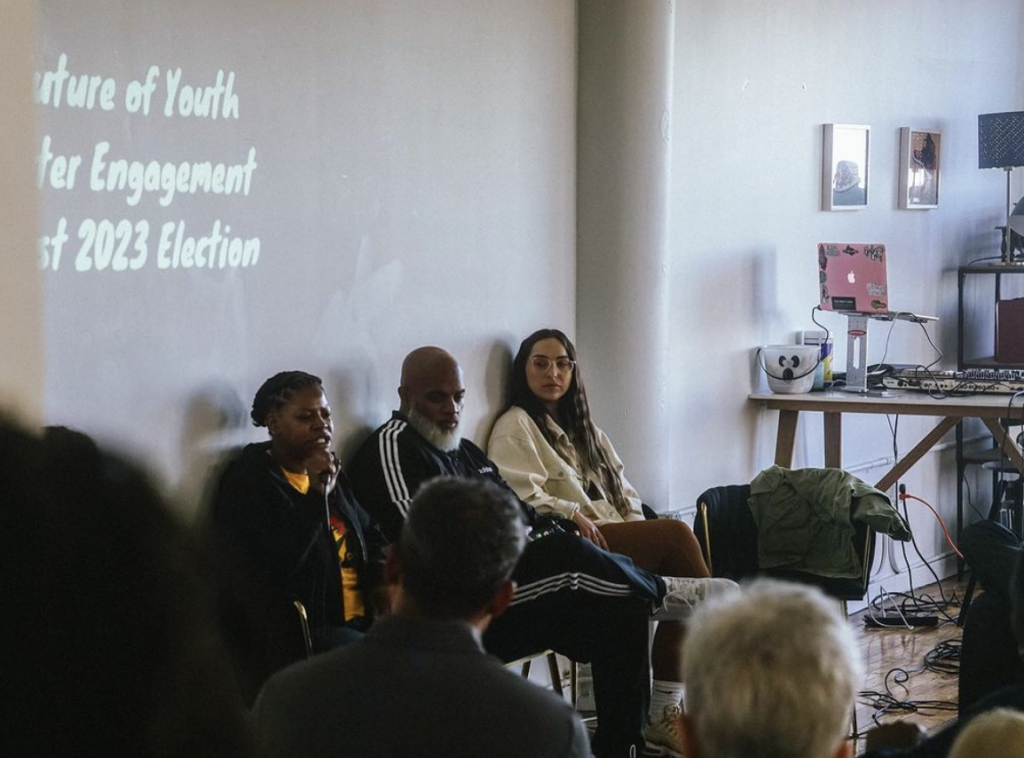
Photo Credit: @chicity_monstar at our second annual Partner & Funder Briefing
Events!
Give A Sh*t Happy Hour: Chicago City Budget
The happy hour, cohosted by City Bureau and Chicago Votes, will catch folks up on the proposed 2024 City Budget and ways you can make your priorities heard. It won’t just be money talk. There will be music, drinks, and great vibes!
RSVP then pull up to our office (1006 S Michigan Ave.) from 6:30 pm to 8:30 pm!

C Space
Pull up to C Space Thursday, October 26th, at 7 p.m. for light refreshments, music, and crafting alongside other creatives.
You’ll also get to sign up to be a guest on Sh*t Talks and/or host creative events in our office (1006 S Michigan Ave)!
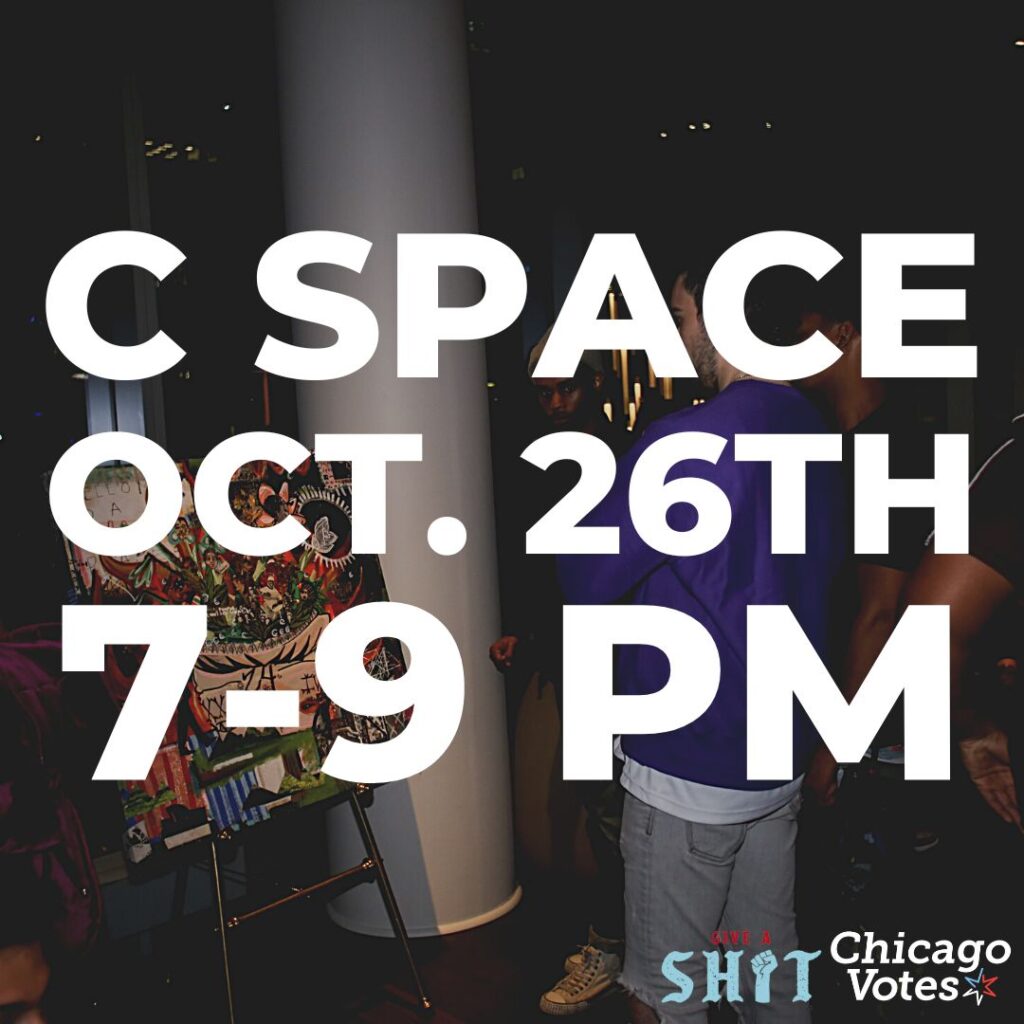
Volunteer with Us!
CCJ Votes
We registered 30 people to vote inside Cook County Jail this past Sunday.
The vast majority of people inside Cook County jail are being held pretrial (have been accused, but not convicted of a crime). That means they have the right to vote!
Become a CCJ Votes volunteer, in a few steps. Start by completing the fully online, self-paced Cook County Jail Votes training. Once you complete the training course, you will begin receiving monthly CCJ Votes opportunities in your inbox!
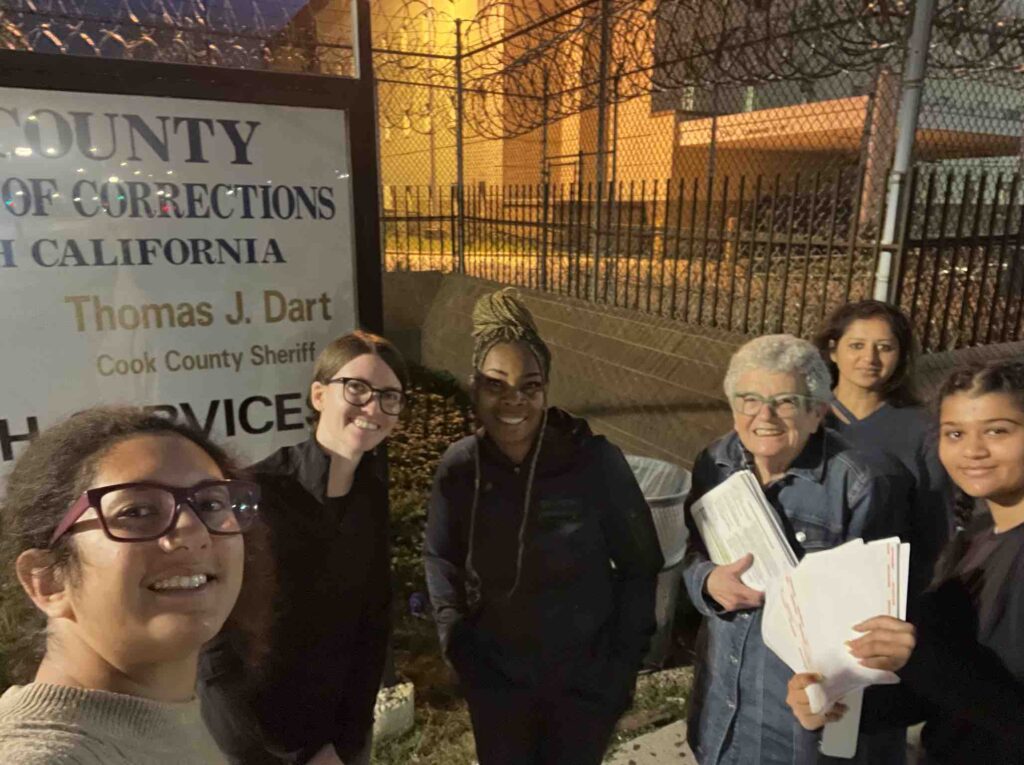
Court Watching
Court watchers are in the building! We are training community members to observe judges seeking retention to Cook County Criminal Court in 2024. Get trained to become a court watcher online, at your own pace. You can also reach out to camille@chicagovotes.com if you have any questions about the program.
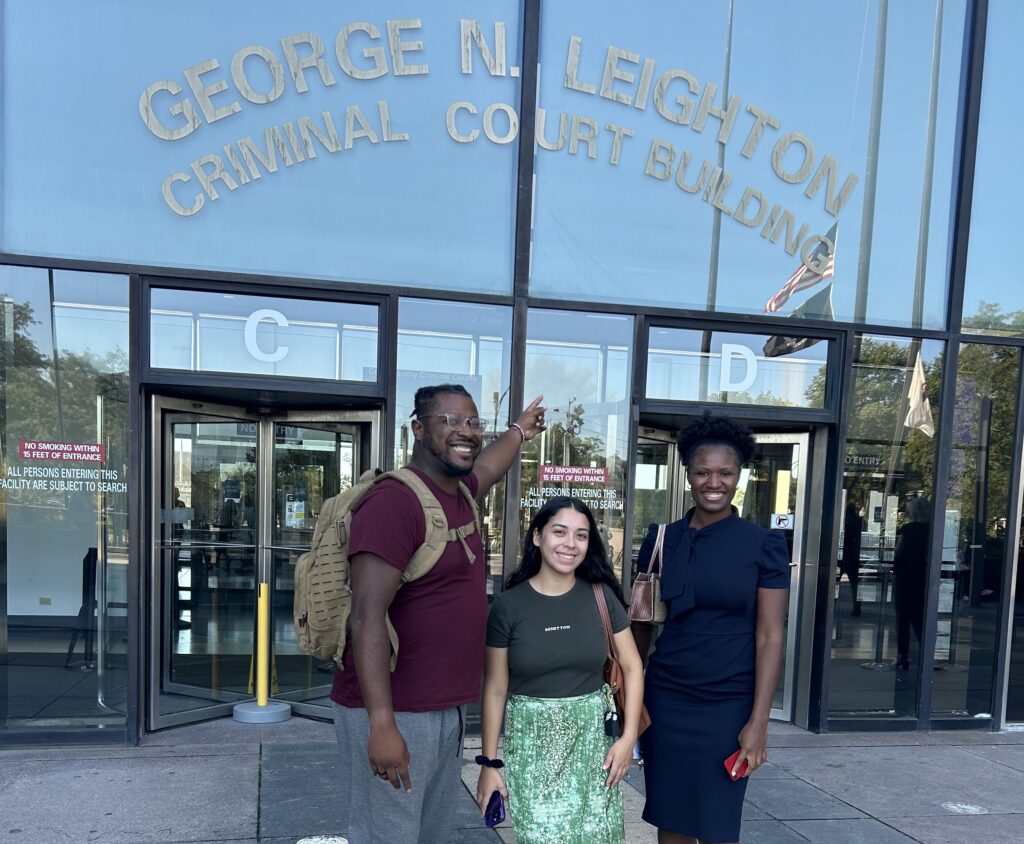
Give A Sh*t Creative Collective
Infusing art into movement work is absolutely necessary. Join the Give A Sh*t (GAS) Creative Collective and become a member of a community of change-making artists.
The Collective is made up of a diverse set of artists, including designers, musicians, poets, and videographers. Join the community and receive access to paid opportunities, including mini-grants, meetings, and events. October’s Give A Sh*t Creative Collective will take place during C Space, on Thursday, October 26th from 7-9 pm in our office.
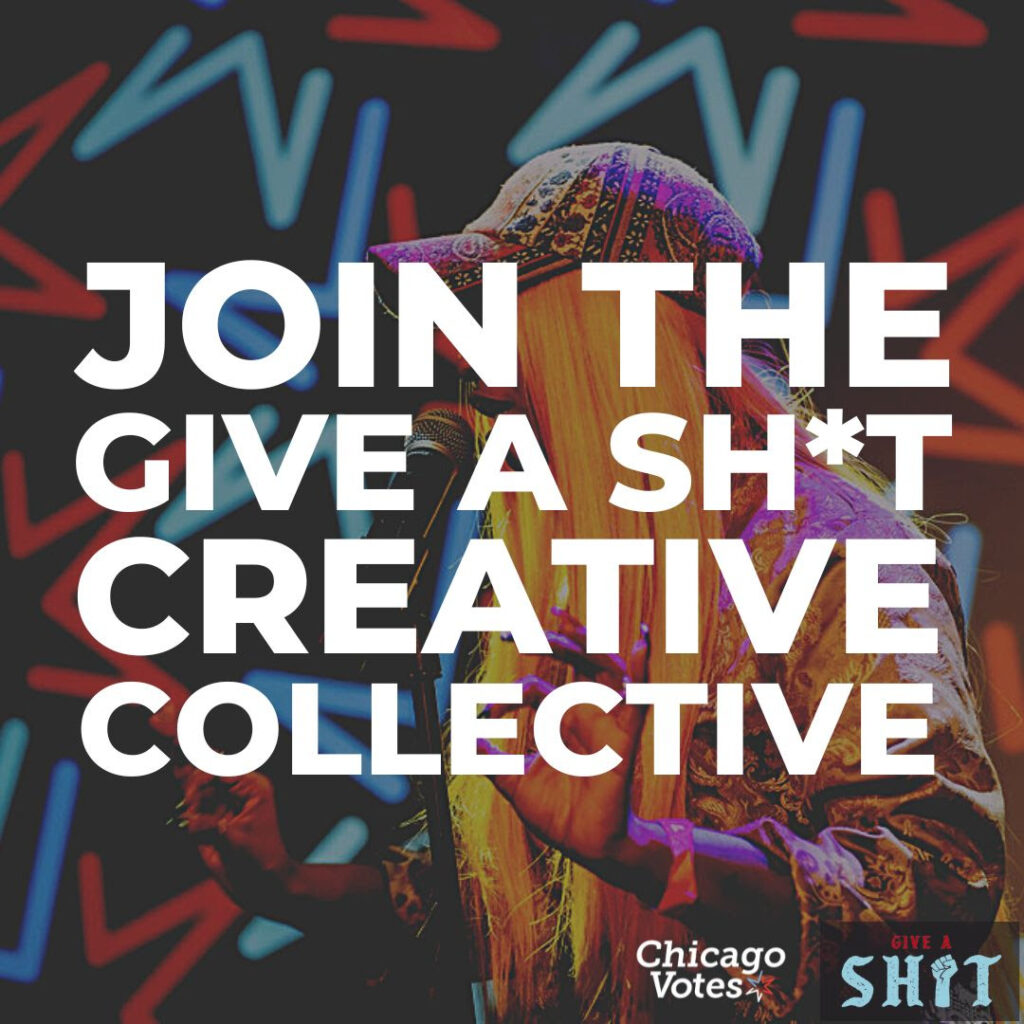
Updates & More!
Voting in Prison Bill
We are in strategizing mode. We are meeting with stakeholders including incarcerated folks in IDOC, lawmakers, community organizations, and organizers to share ideas and tactics to pass the Voting in Prison legislation in Illinois.
Watch Silenced: An Unlock Civics Documentary to understand the urgency of restoring voting rights to people in prison. Learn more and take action here.
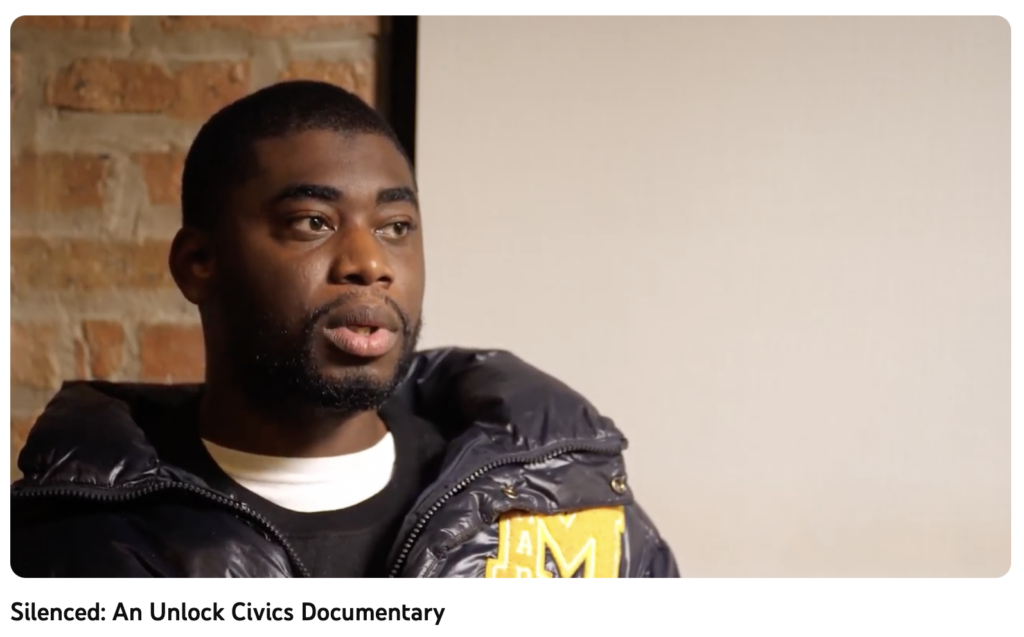
Creative Collective Member Spotlight at the Chicago Athletic Association!
Stop by the second floor of the Chicago Athletic Association to view Queen L. Hibbler’s art on display! Queen is an artist from the Westside and a member of Chicago Votes’ Give A Sh*t Creative Collective. As a proud Queer Black woman & artist, her work is representative of the beauty of what it means to be Black- as well as a woman. Hibbler is currently working on experimenting with different concepts and mediums to illustrate her aesthetic on a larger scale. Queen tends to be graphic and fluid with the marks she makes.
Learn more about Queen’s portfolio and how to commission her work on her website.
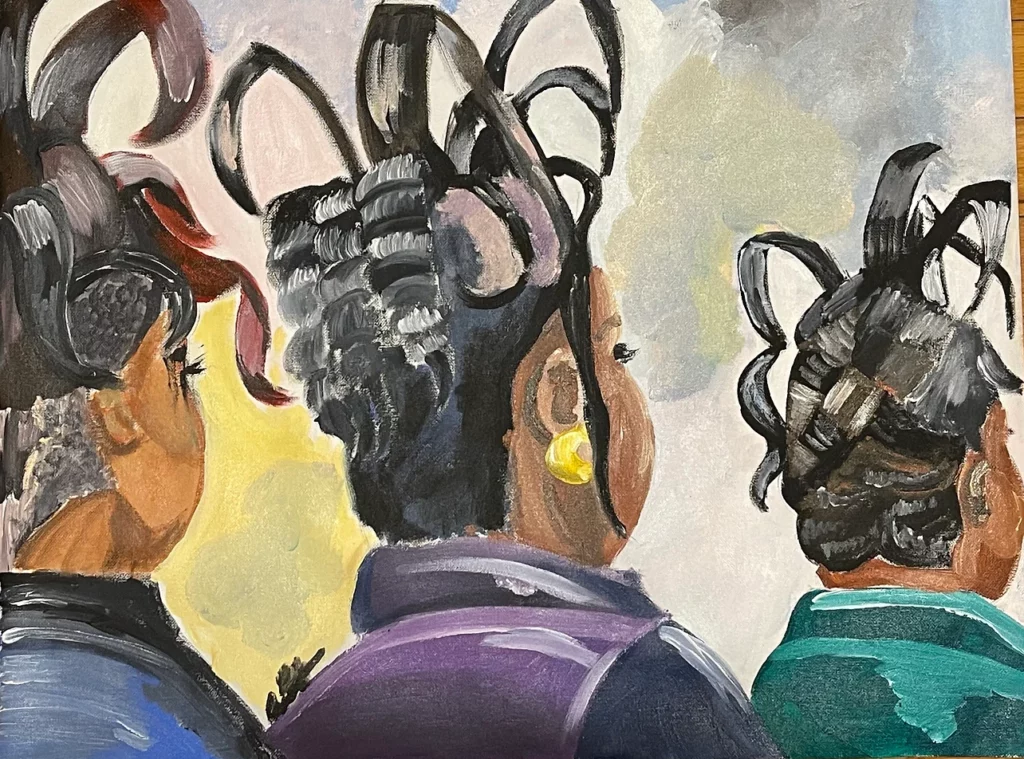

Season four of Sh*t Talks is out and new episodes are dropping weekly on Thursday nights. Hosted by comedian and TikTok icon Naira Bills and joined by different guests each week. We talk about Chicago’s rap and philanthropy scene, holding lawmakers accountable, and so. much. more.
Episodes out right now!
- More Than Music: Naira sits down with MFnMelo, a member of the West Side-born hip hop collective Pivot Gang & the John Walt Foundation, & Theresa Ashford from G Herbo’s Swervin Through Stress. The connection between hip-hop, rap, and community is indisputable, but how does it show up in Chicago? How are artists in Chicago using their platform for advocacy and change? Sit down with host Naira, MfnMelo, and Theresa Ashford to find out.
- Finding Our Stories: If you’re Black in this country, you’ve probably been asked, “Where are you from?” Followed by, “But where are you REALLY from?” Answering that question isn’t always straightforward. Naira is joined by Makafui Searcy, the founder of Fourtune House, and David W Johnson, the founder of True Chicago, to talk about finding our familial stories, the challenges in documenting and preserving family history, and reconnecting with family members.
- Judges & Lawmakers Are Supposed to Work For Us: If you’re Black in this country, you’ve probably been asked, “Where are you from?” Followed by, “But where are you REALLY from?” Answering that question isn’t always straightforward. This week on Sh*t Talks Naira is joined by Makafui Searcy, the founder of Fourtune House, and David W Johnson, the founder of True Chicago, to talk about finding our familial stories, the challenges in documenting and preserving family history, and reconnecting with family members.
A new episode drops TONIGHT! Watch Sh*t Talks on Youtube or listen to them wherever you stream your podcasts.
Sh*t Talkin’ Central
On September 19th, voting rights groups across the country celebrated National Voter Registration Day. In observance, we published, “Advocating for the expansion of voter access in jail and prison should be a part of your National Voter Registration Day” where our colleagues in the Stateville C.C. Think Tank share letters on the importance of voting and expanding access to people in prison.
Head over to Sh*t Talkin’ Central to read a share stories from young people in Chicago.
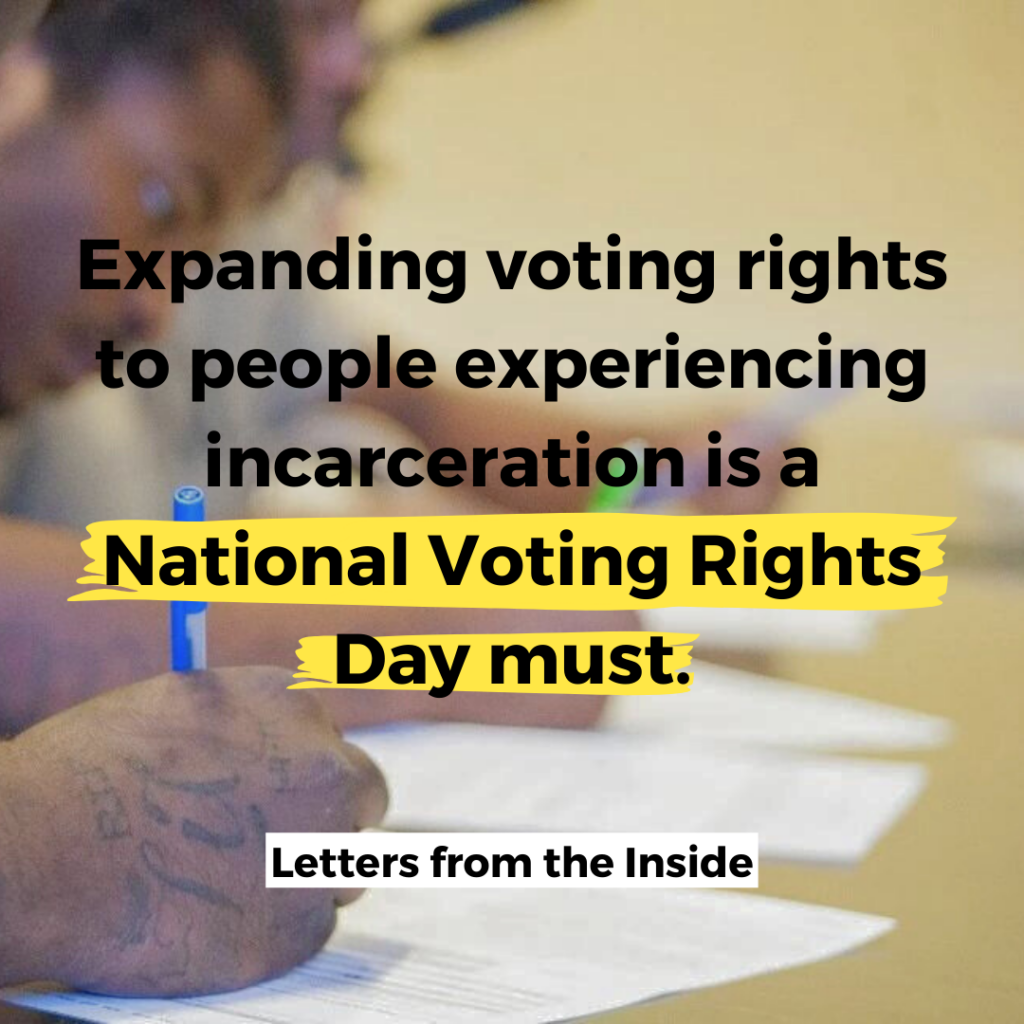
Get Paid to Create!
We publish stories submitted by young Chicagoans, a.k.a. you! You can submit op-eds, digital content, poems, and photos. Selected contributors will be paid $100 per published piece. Pitch us a story here.
